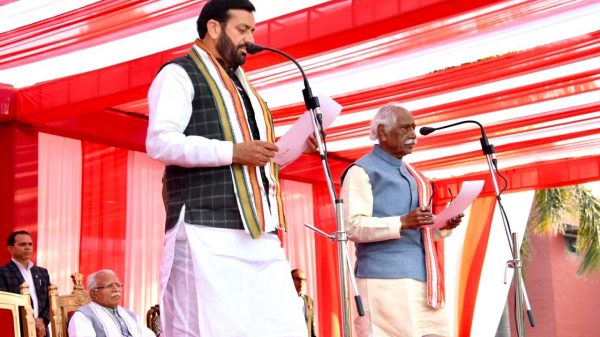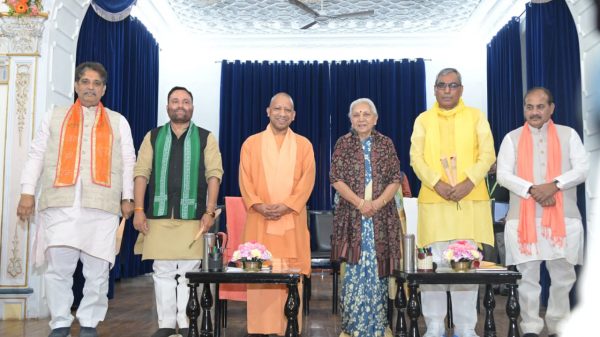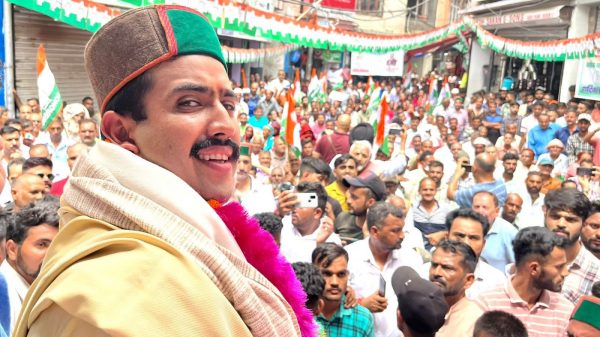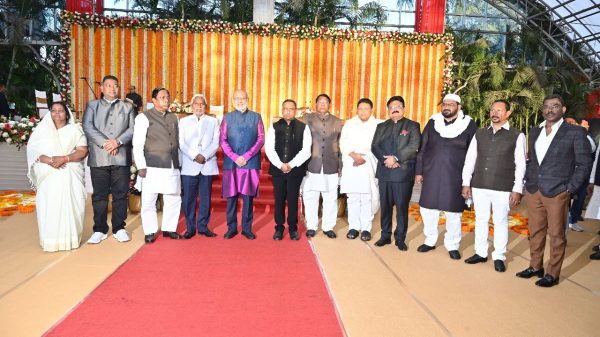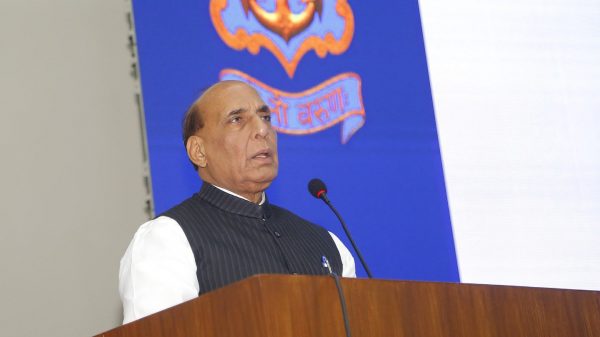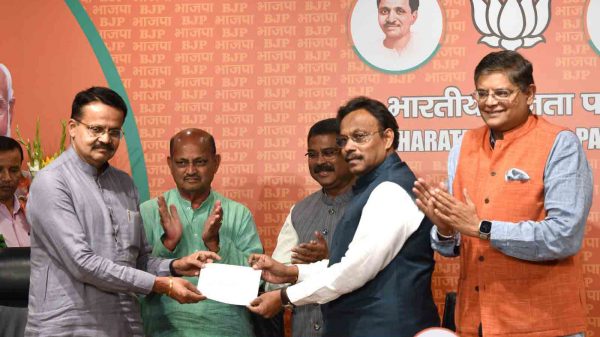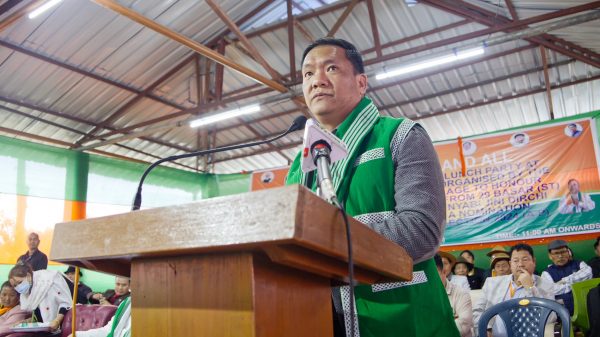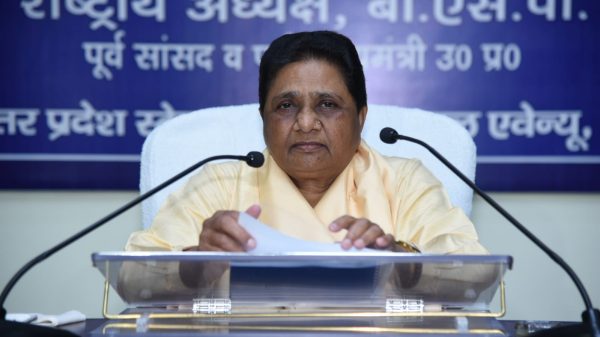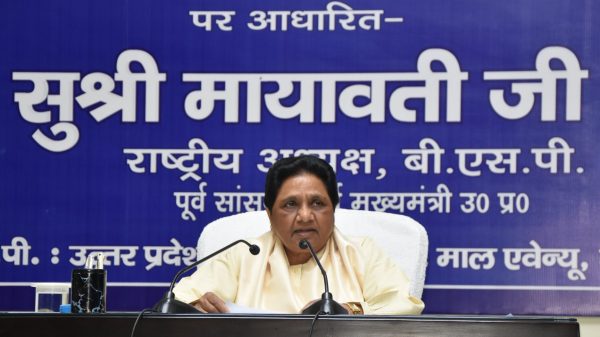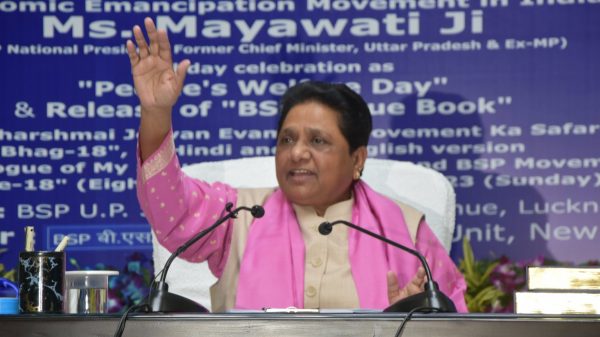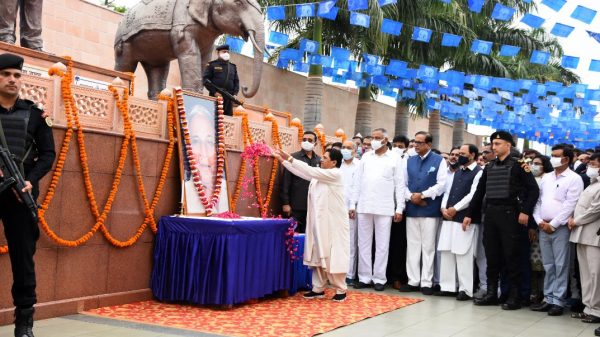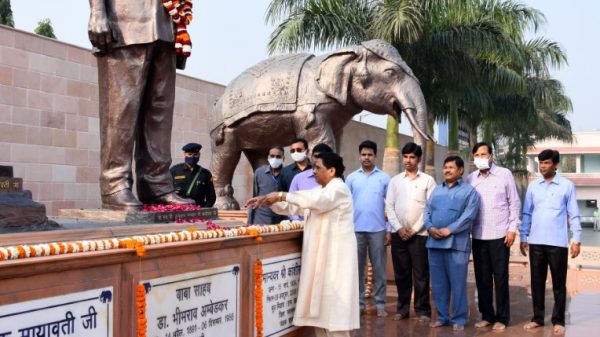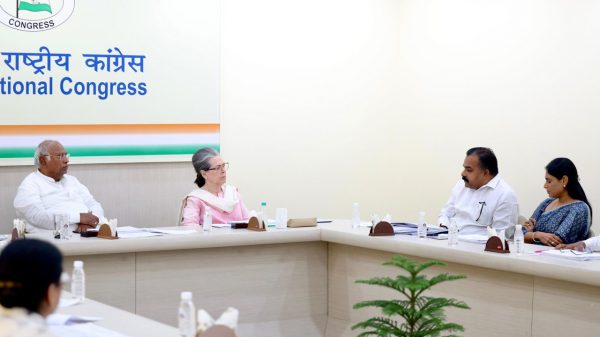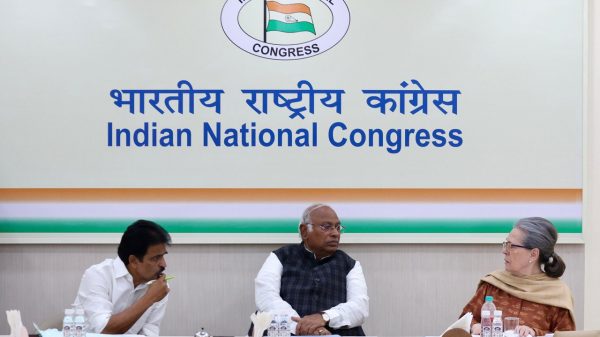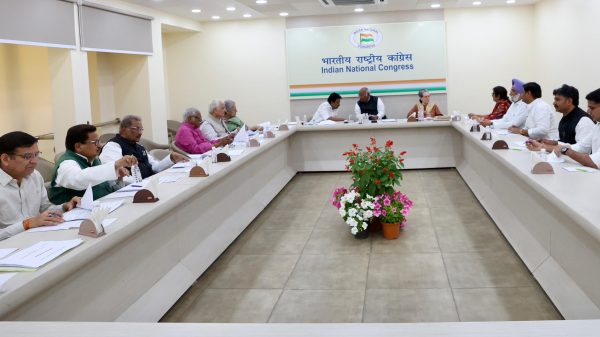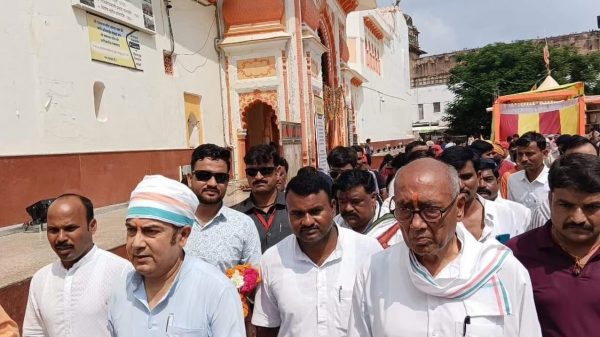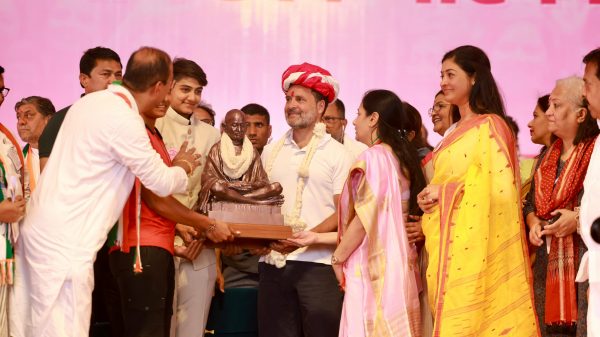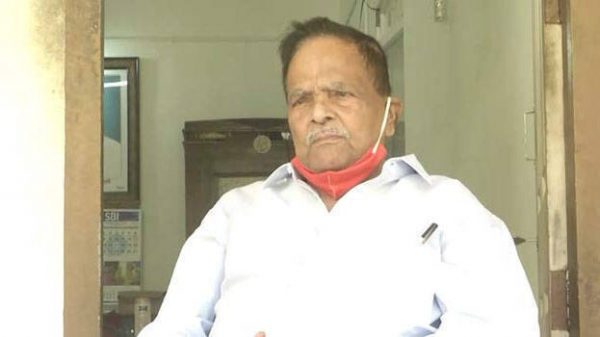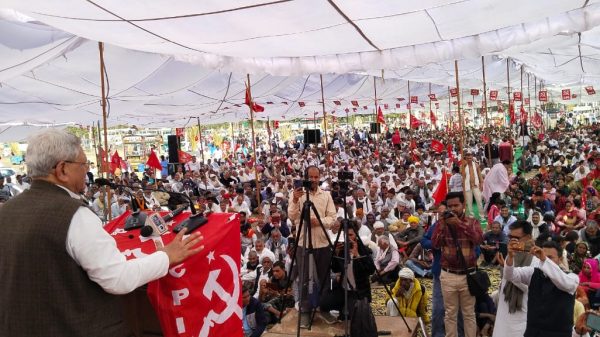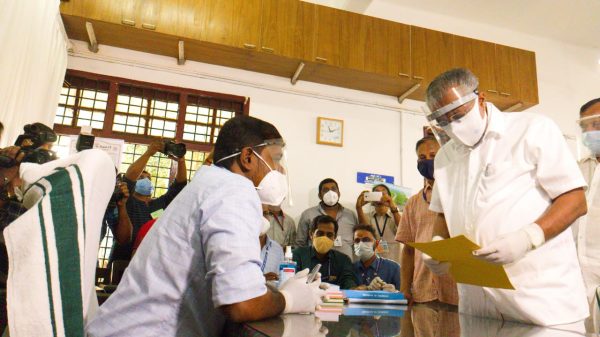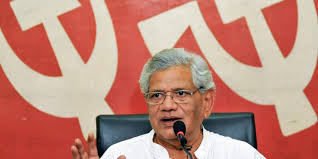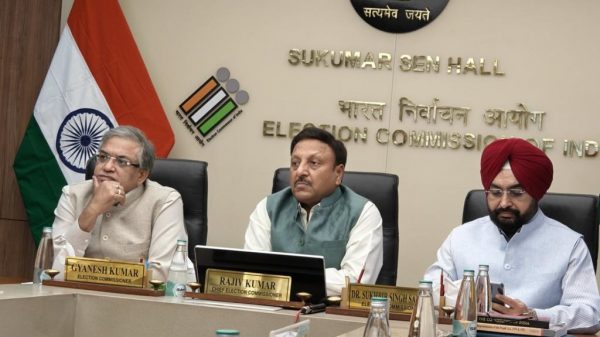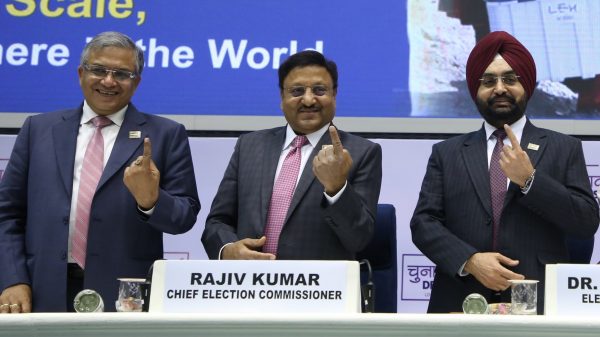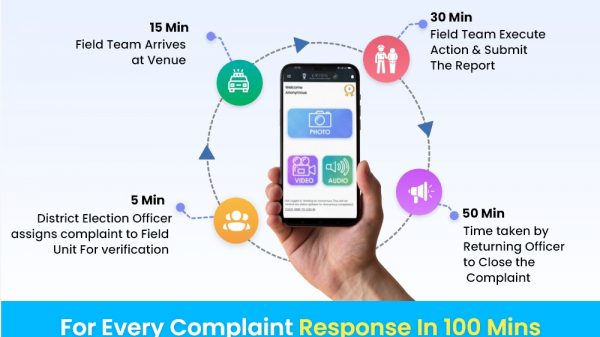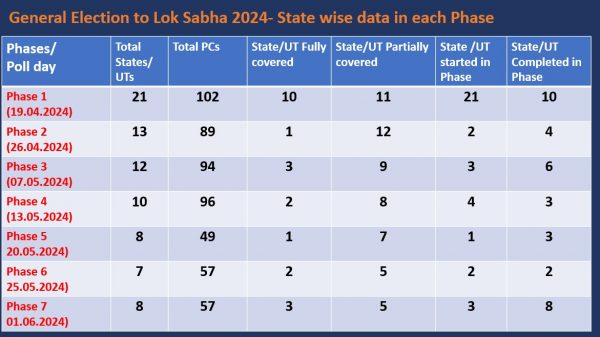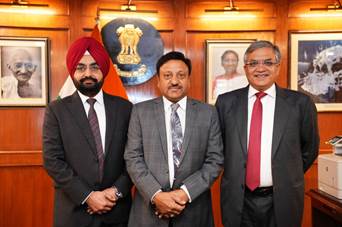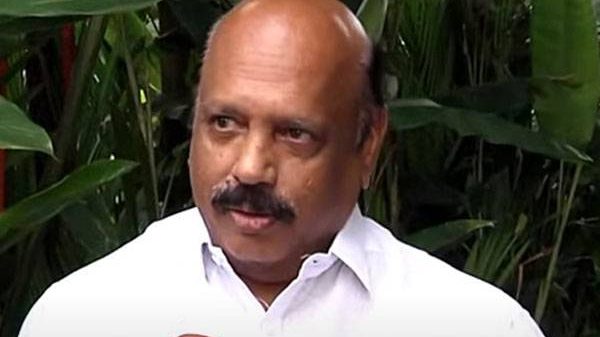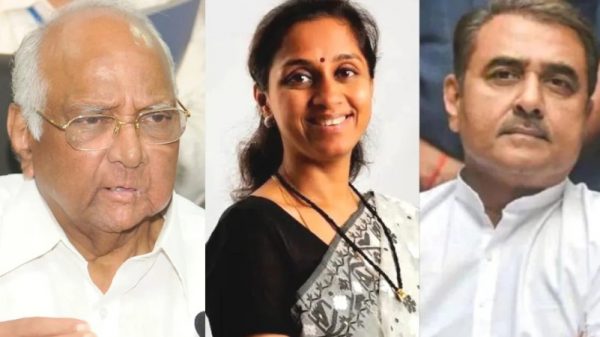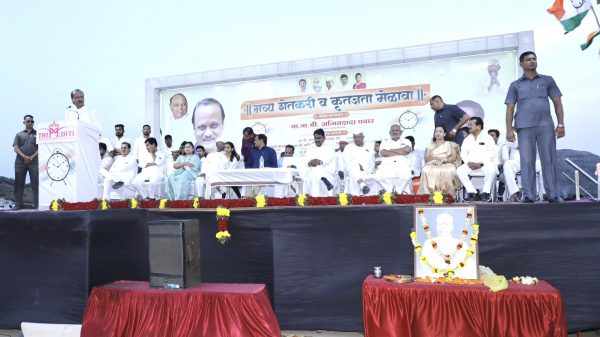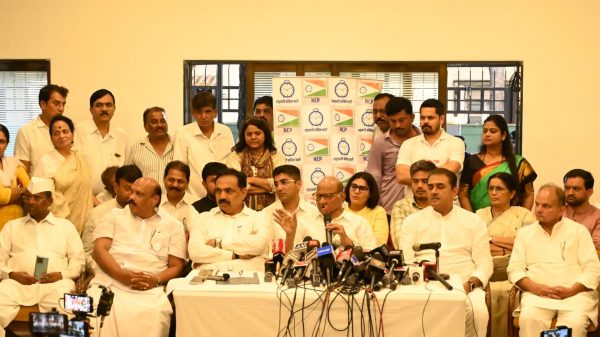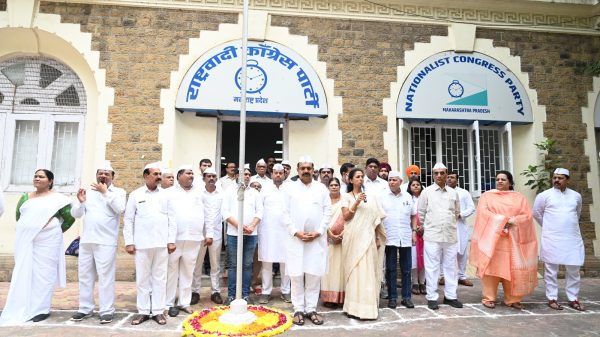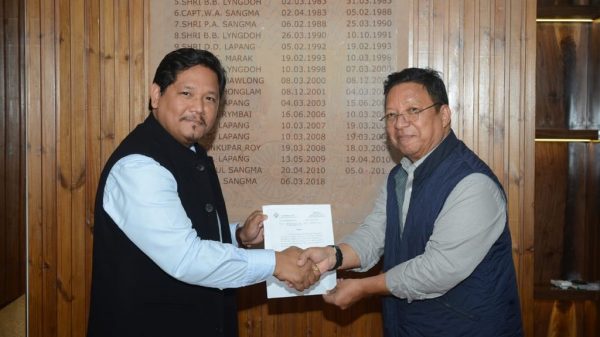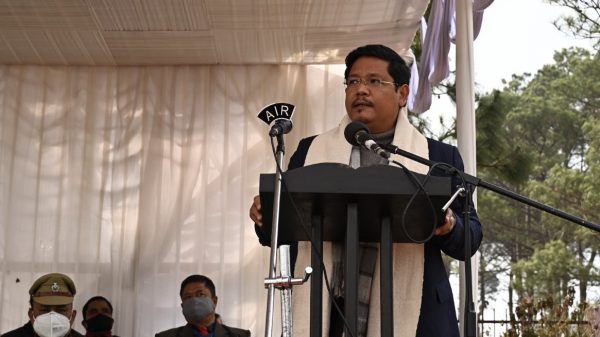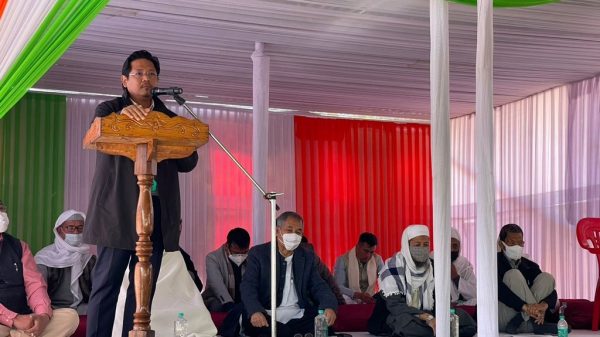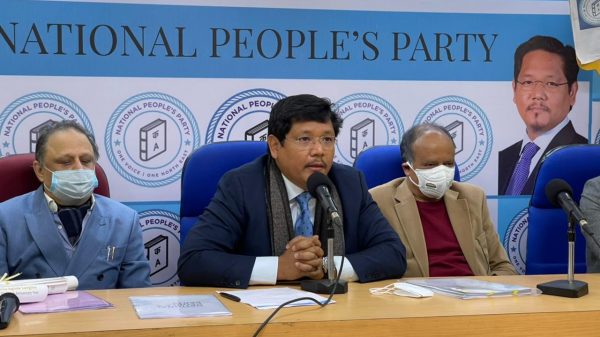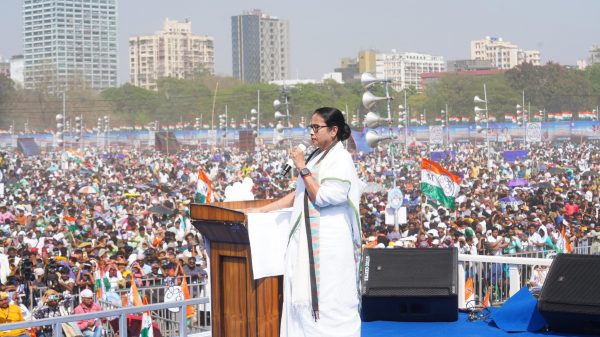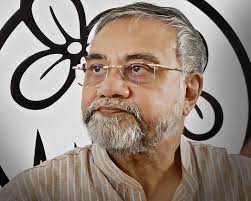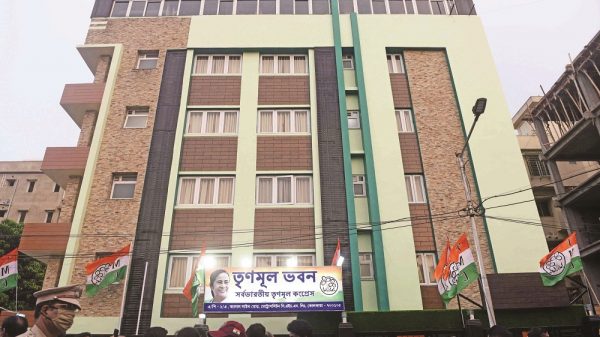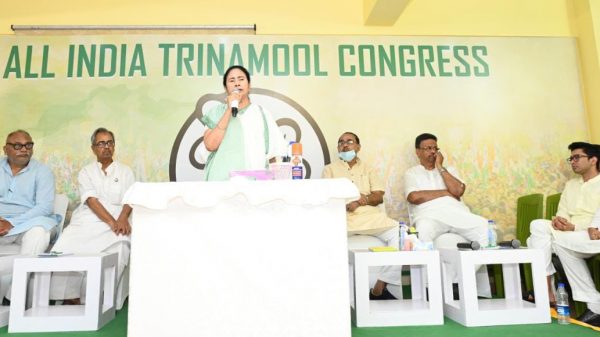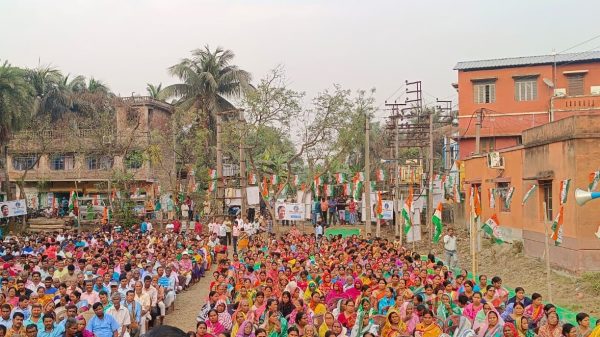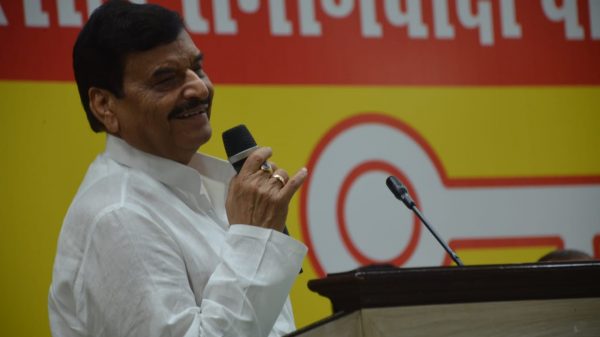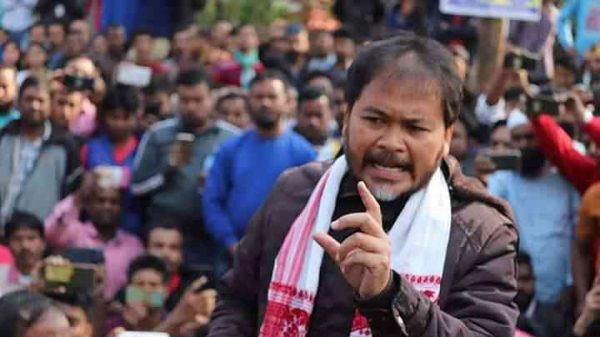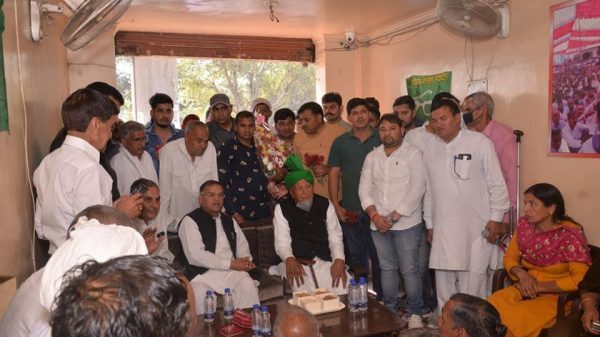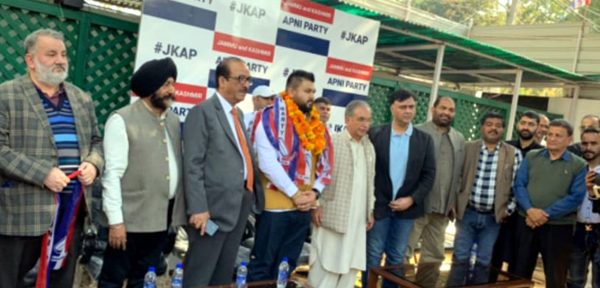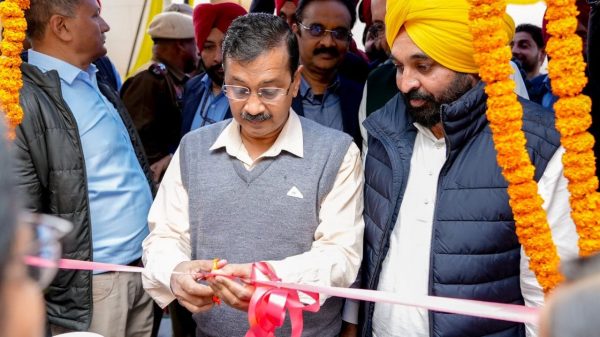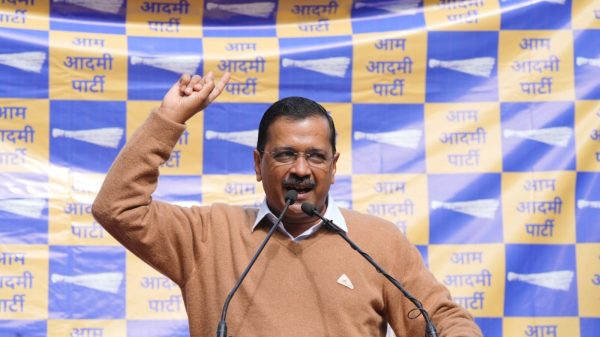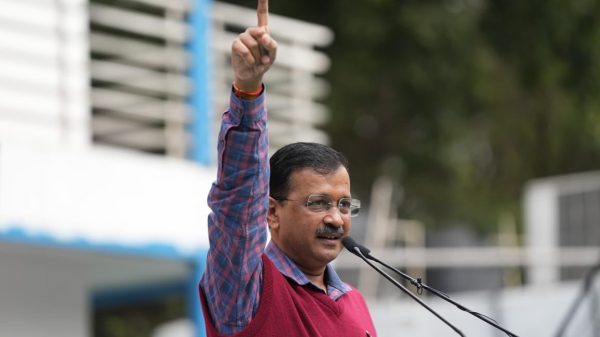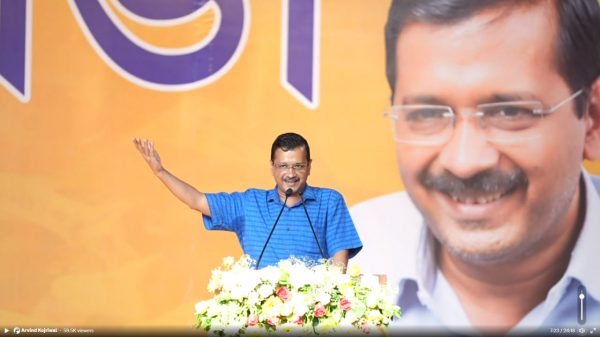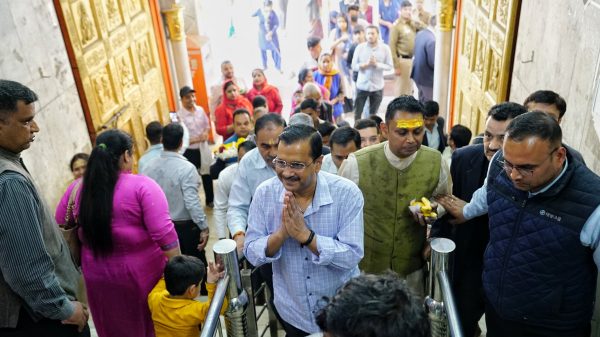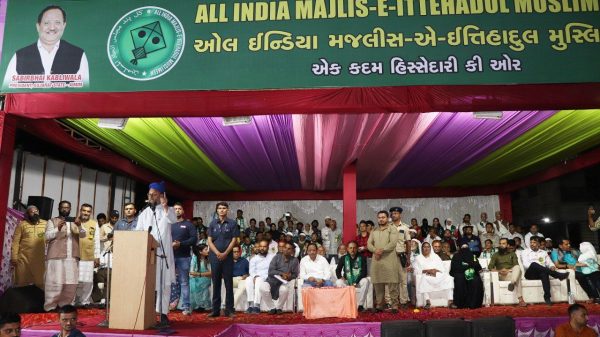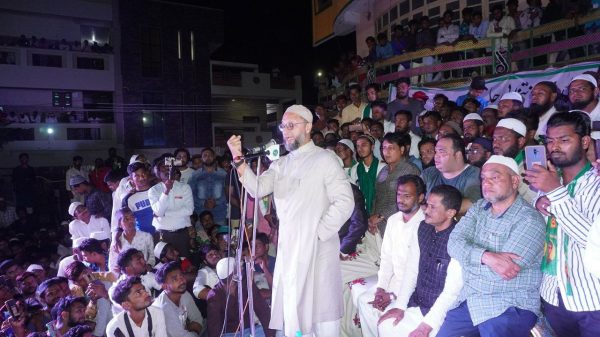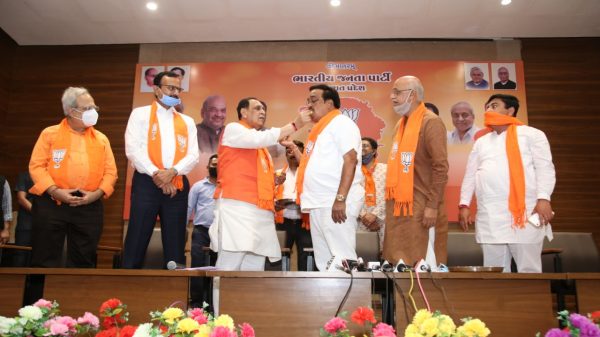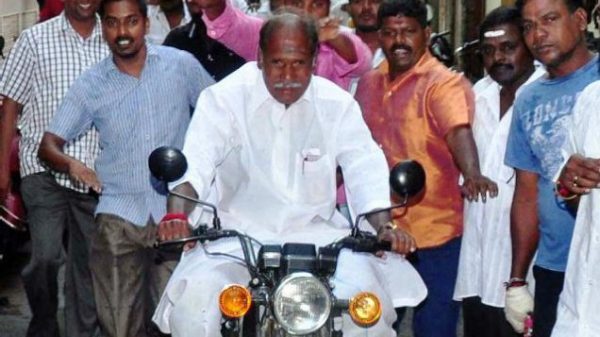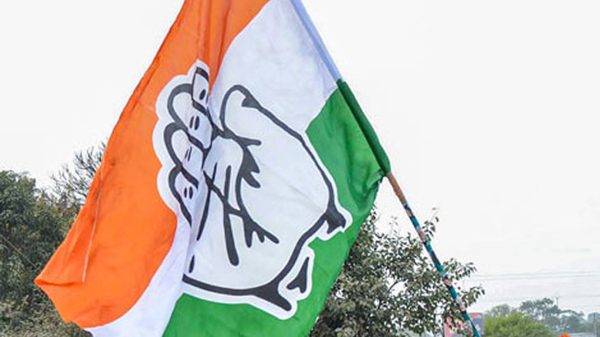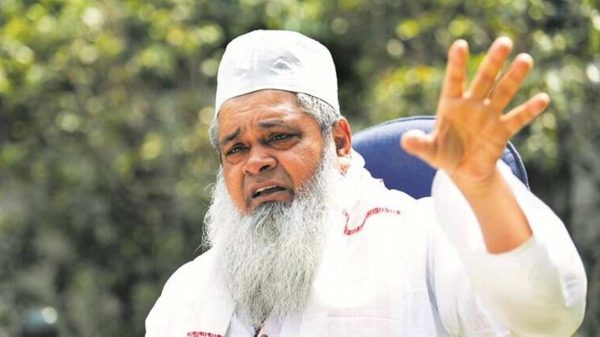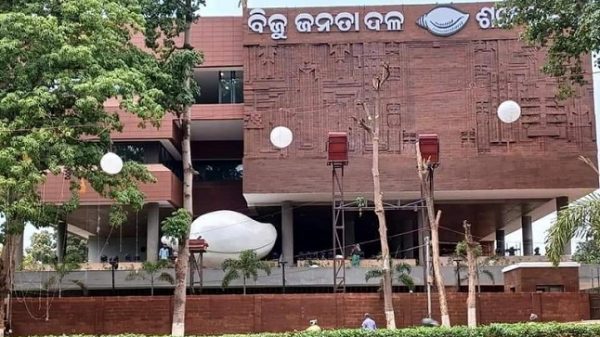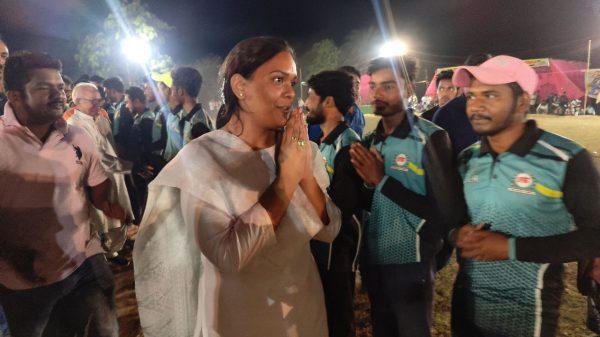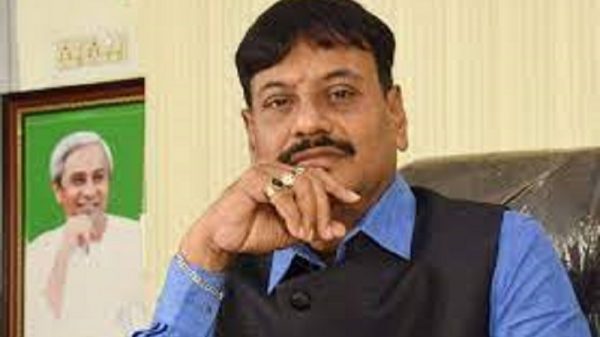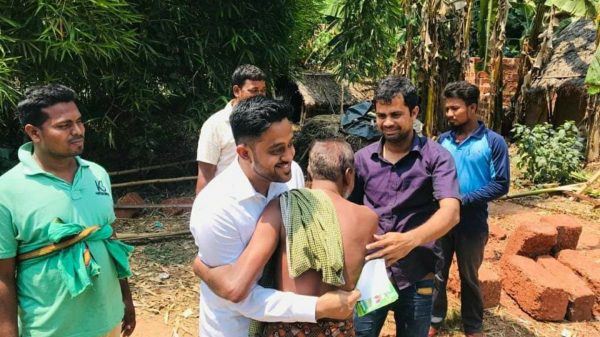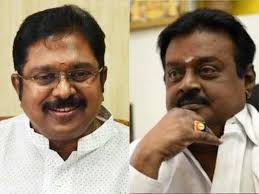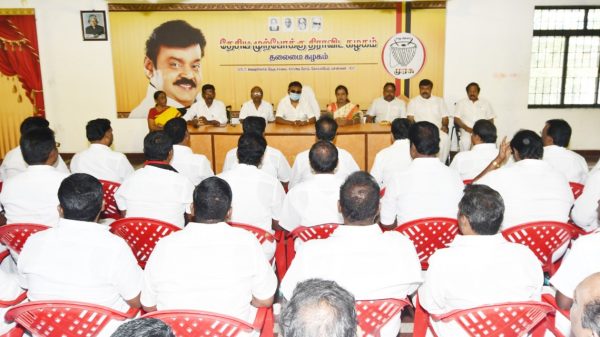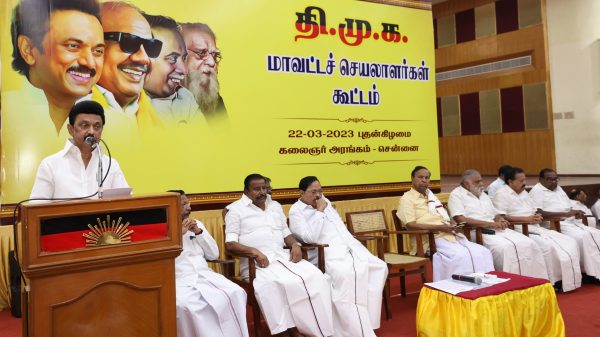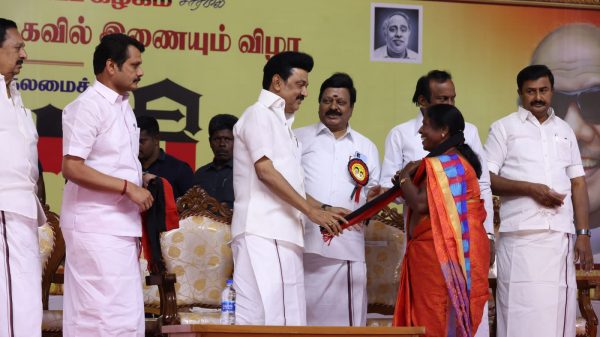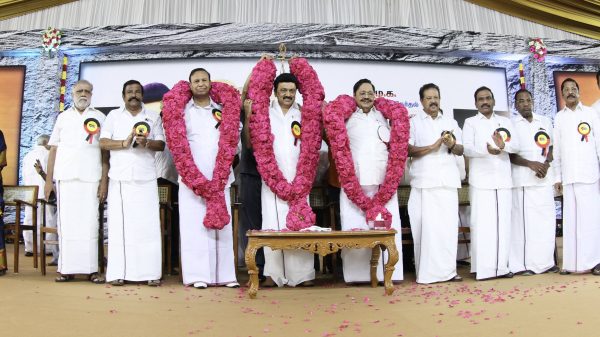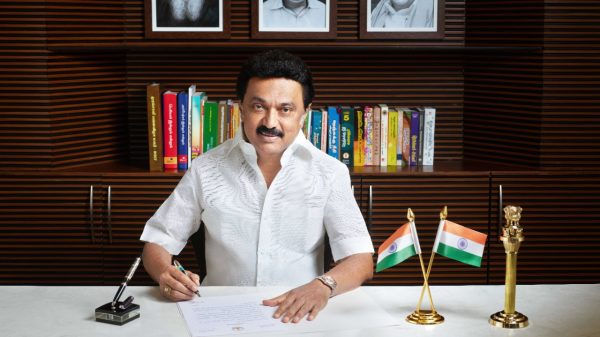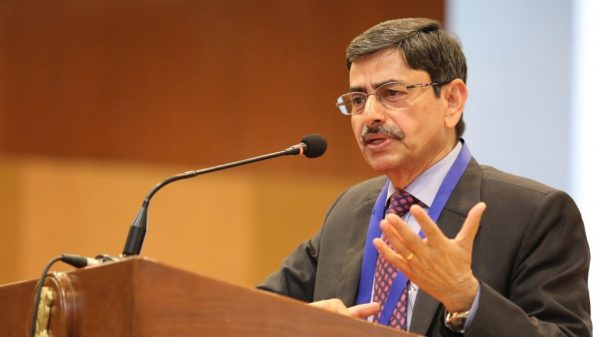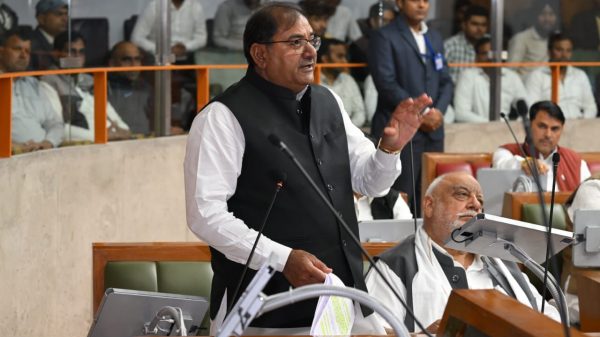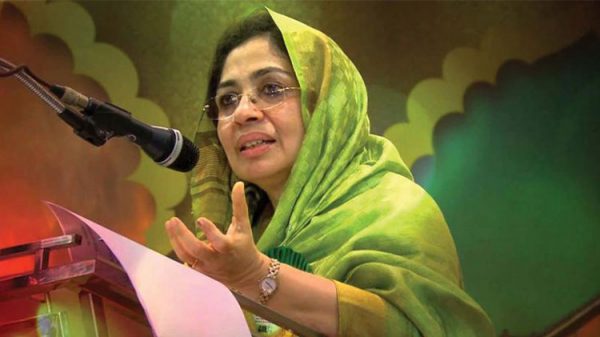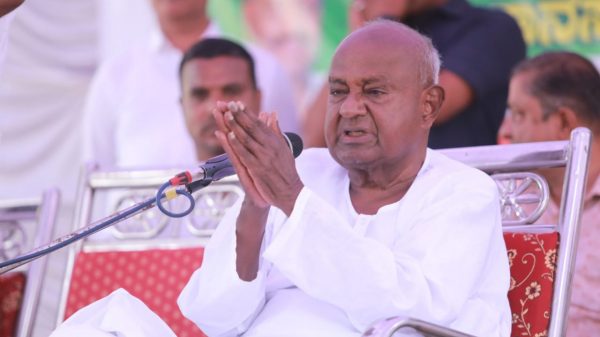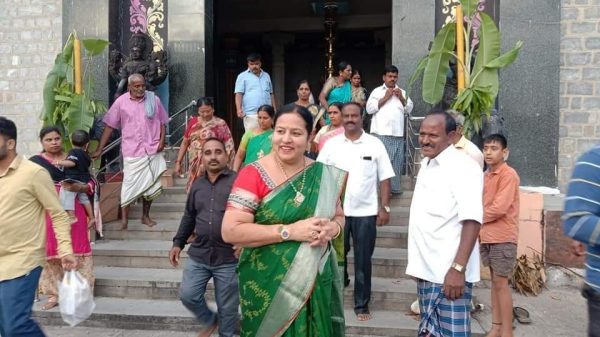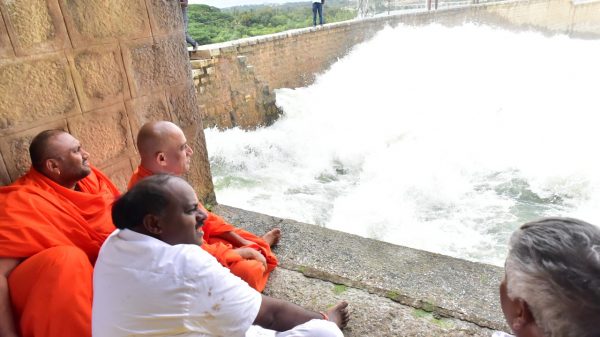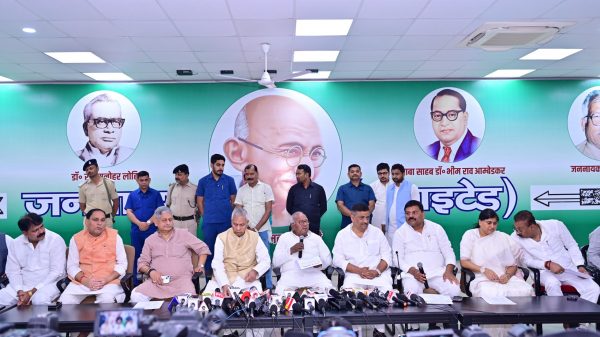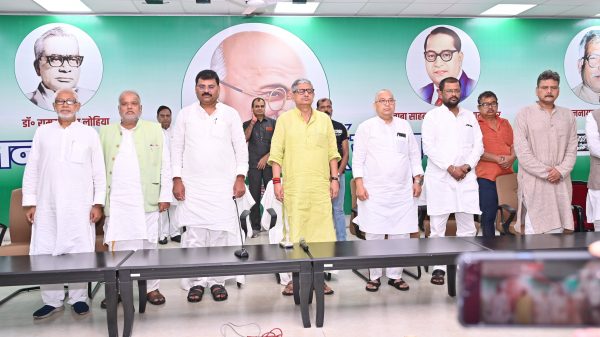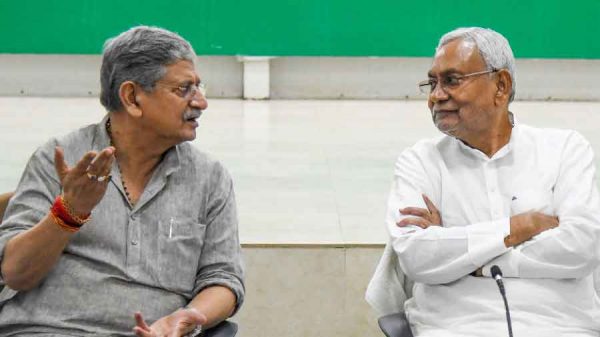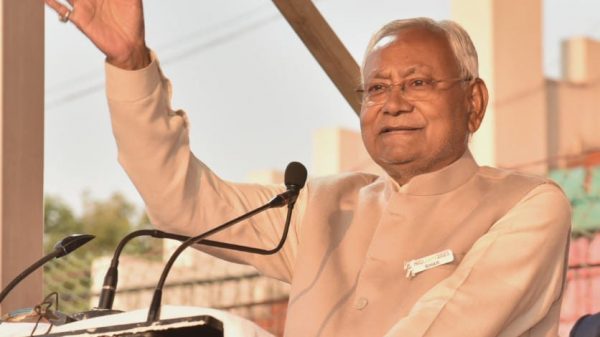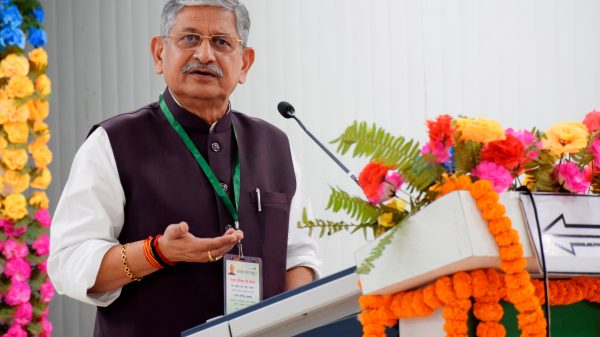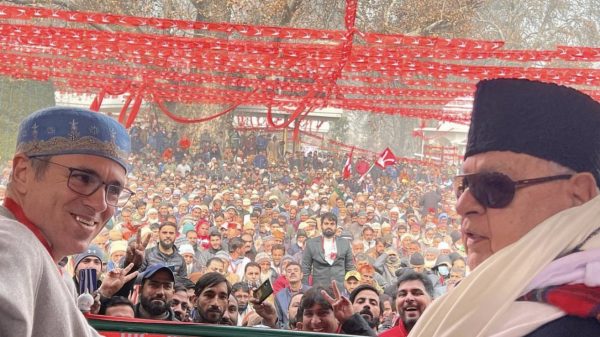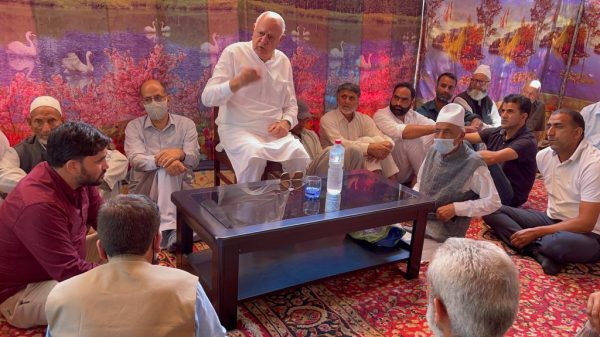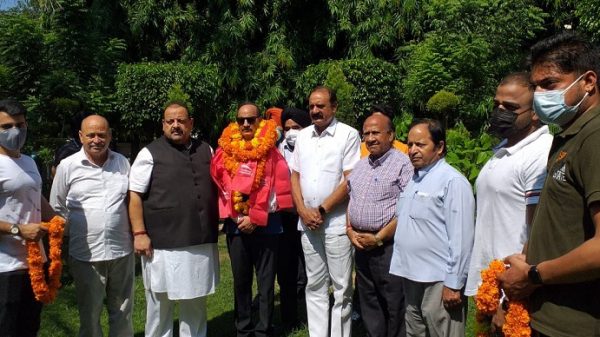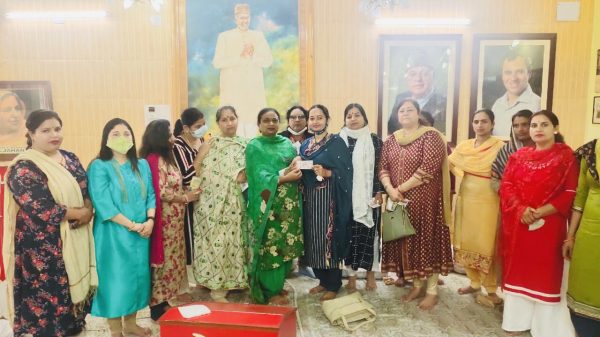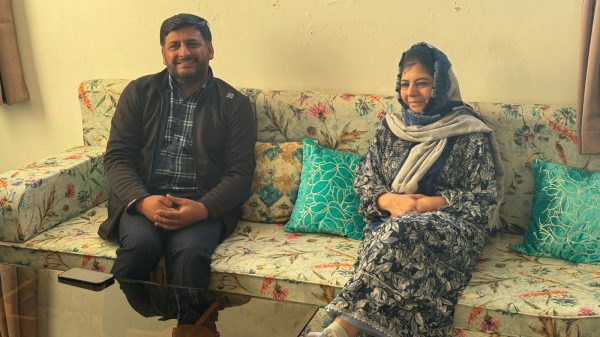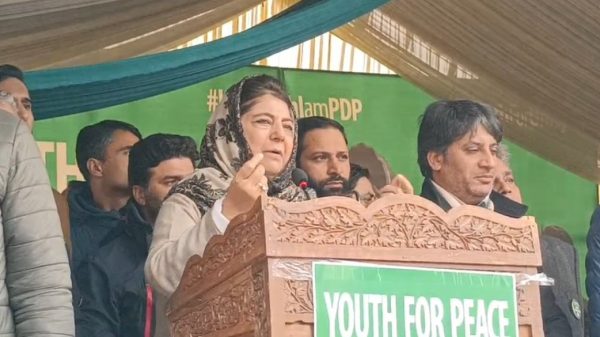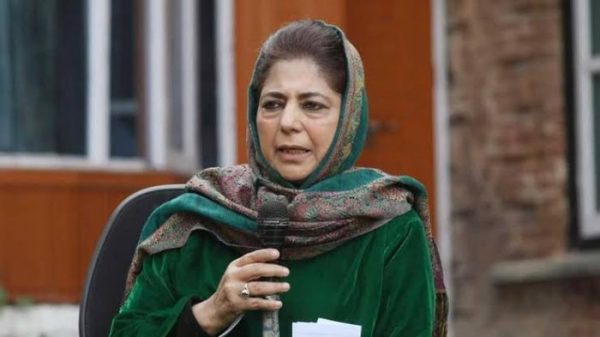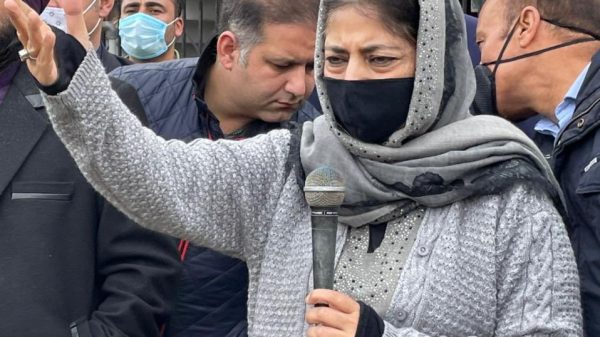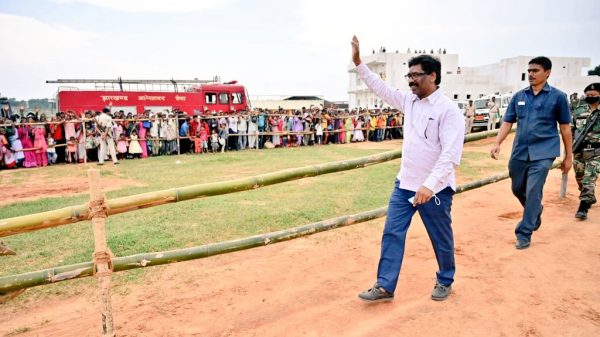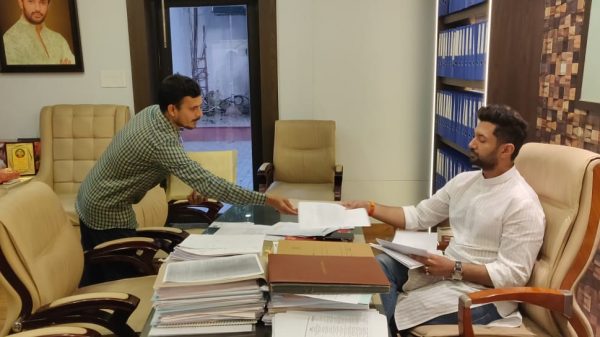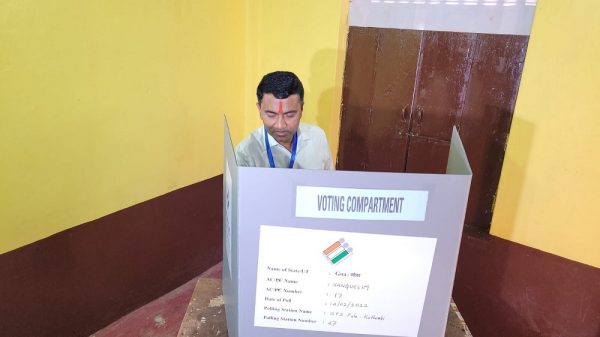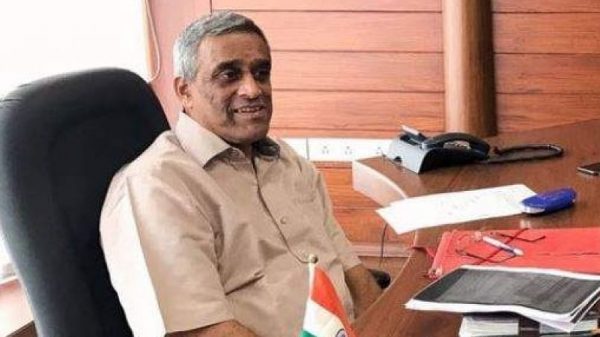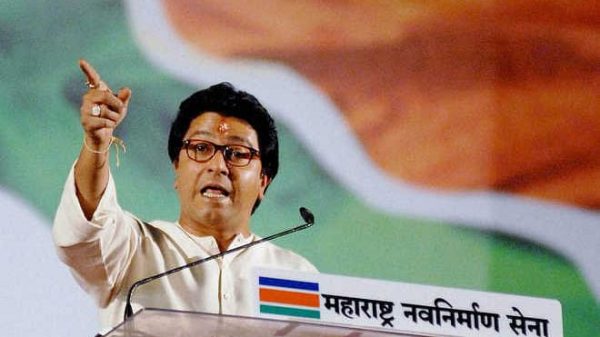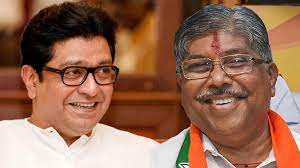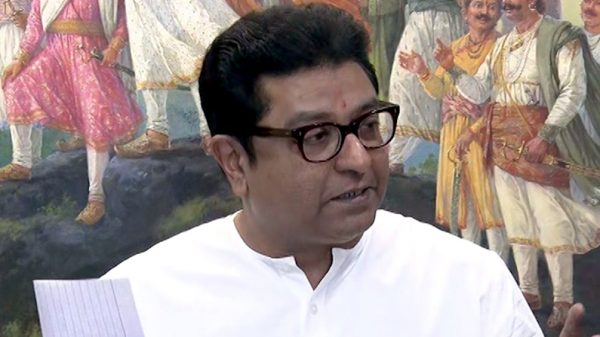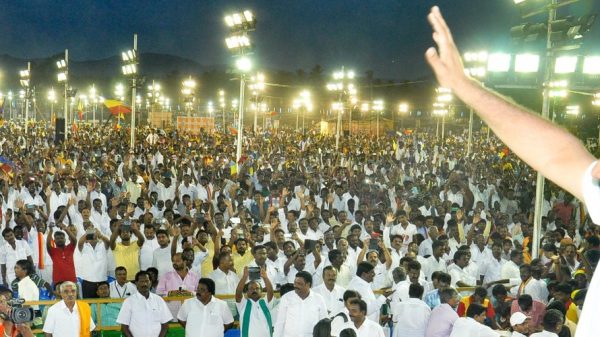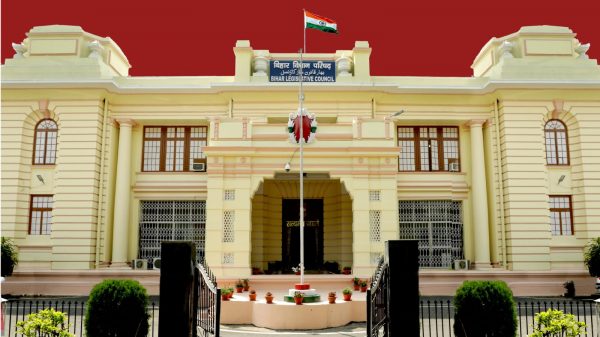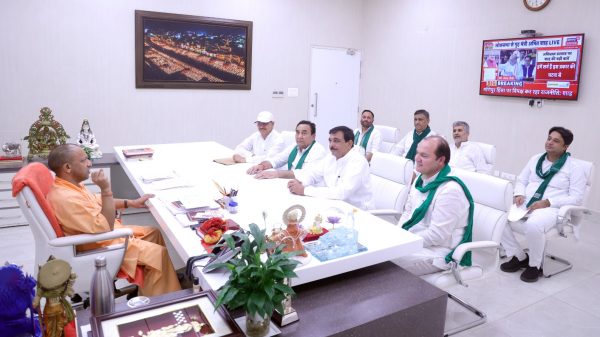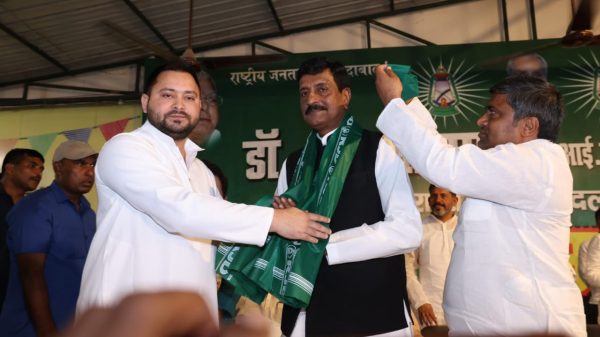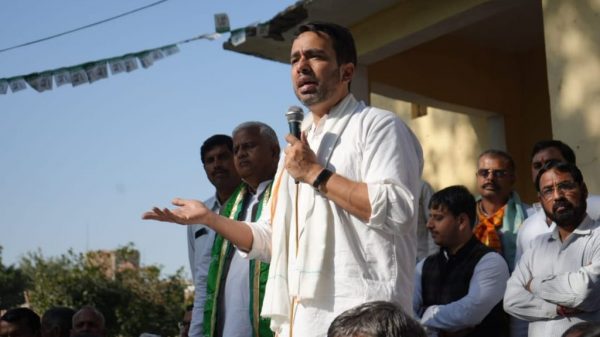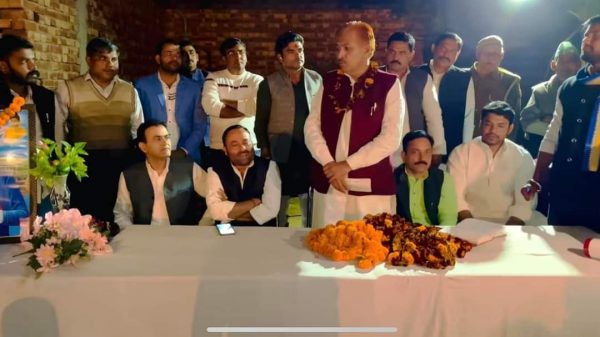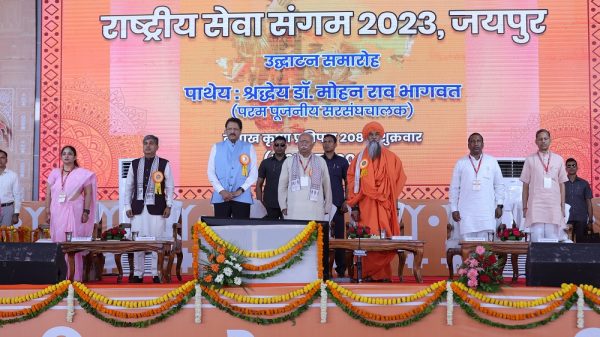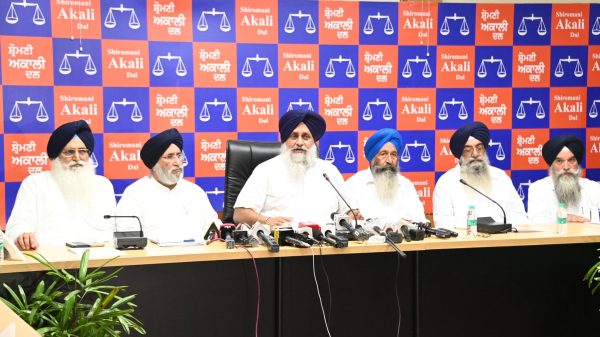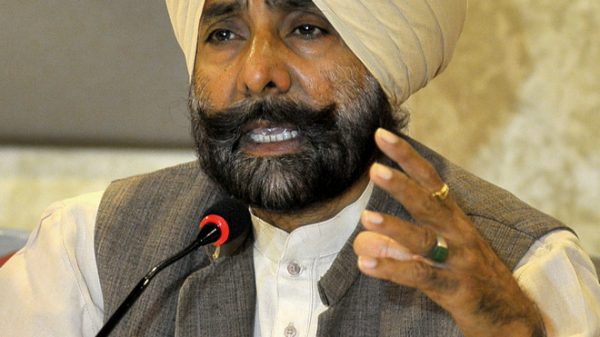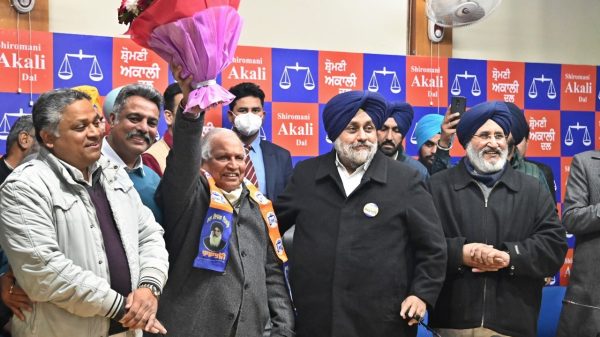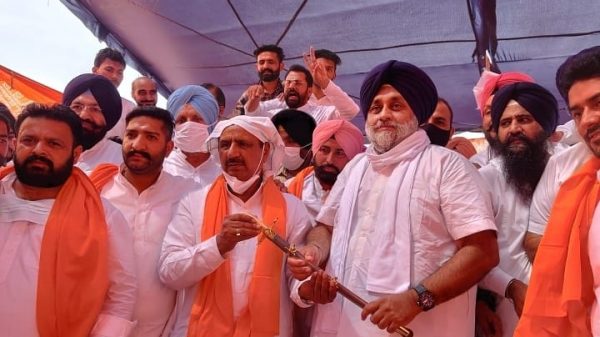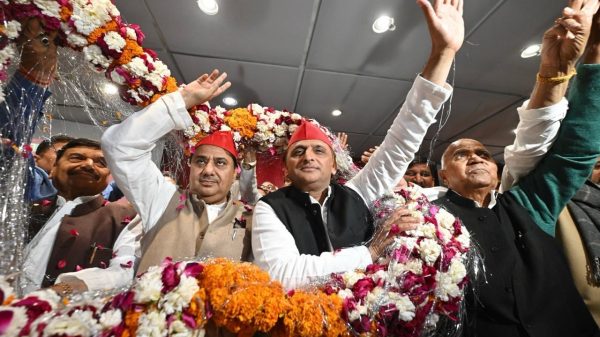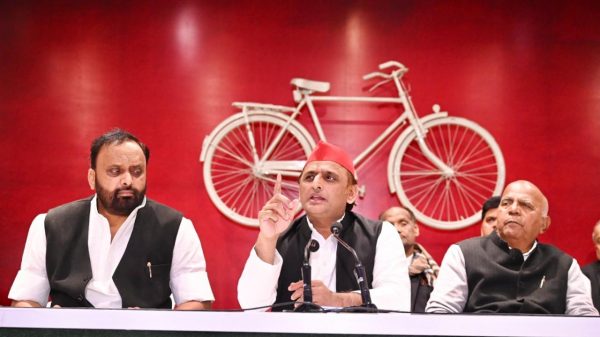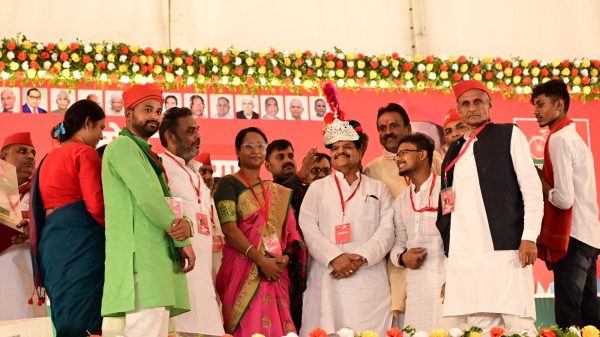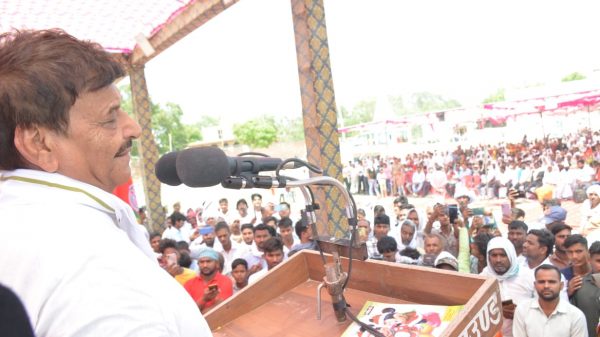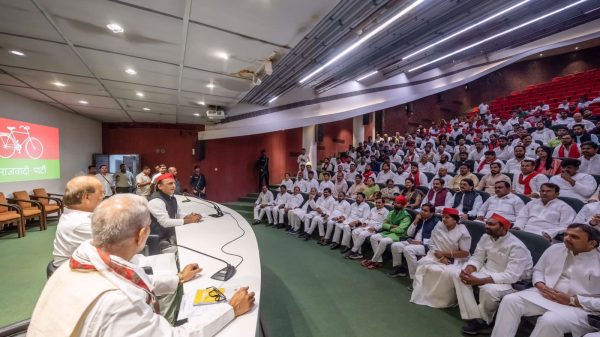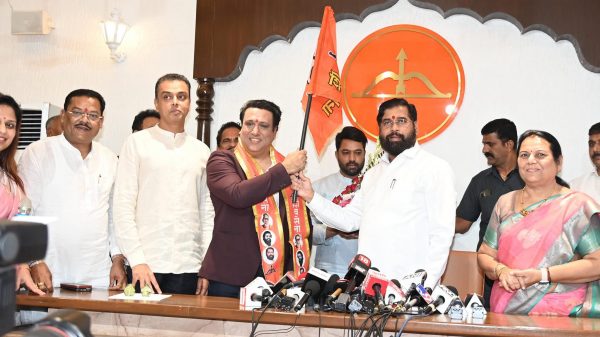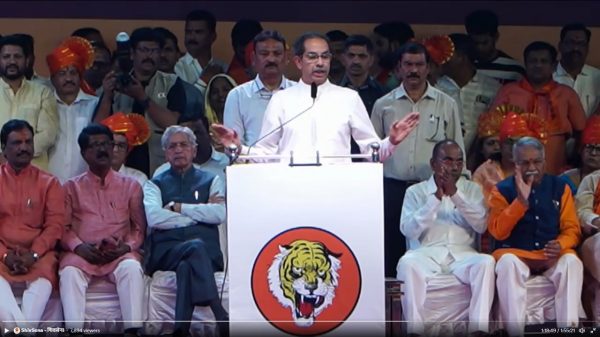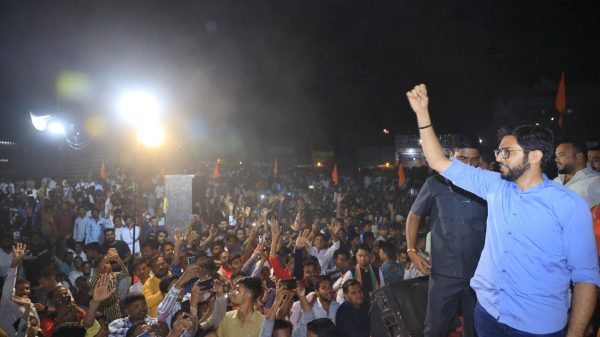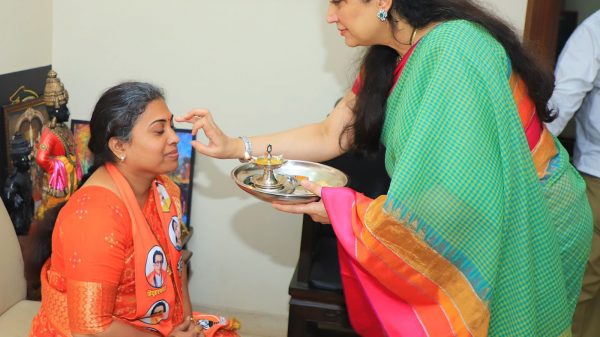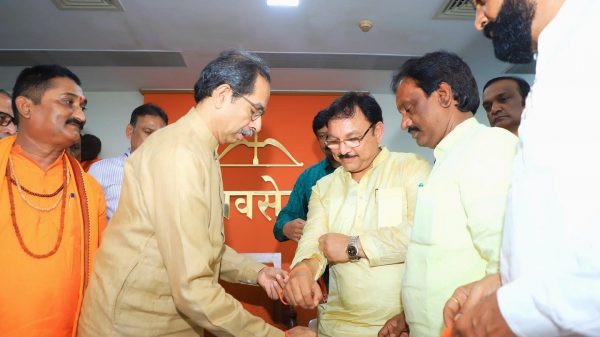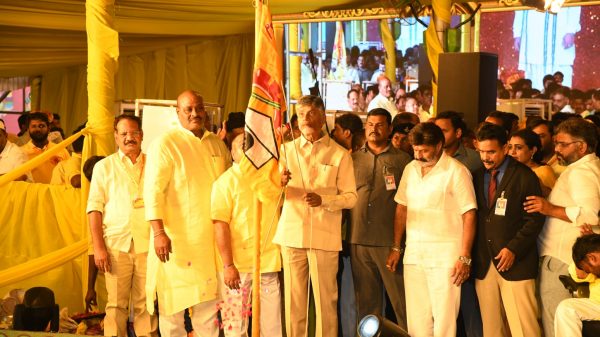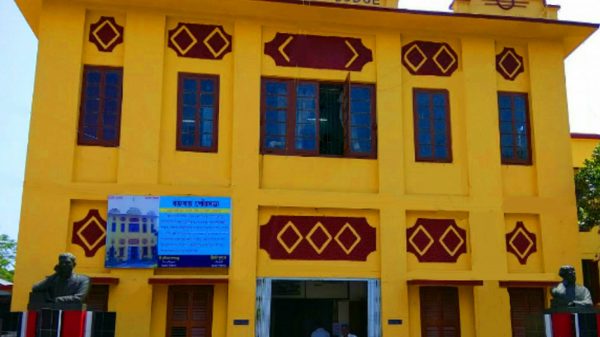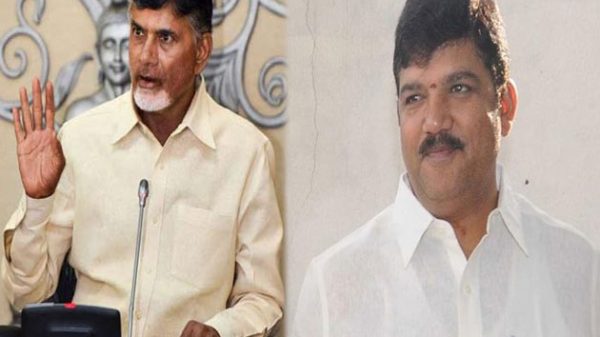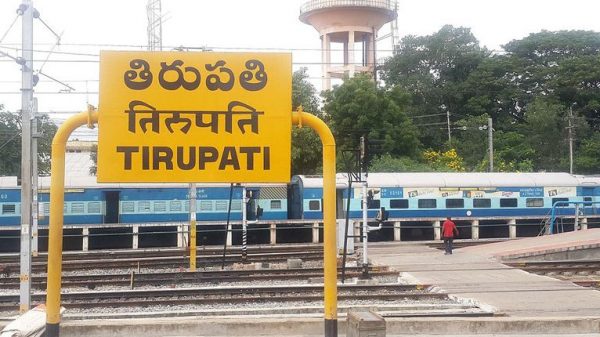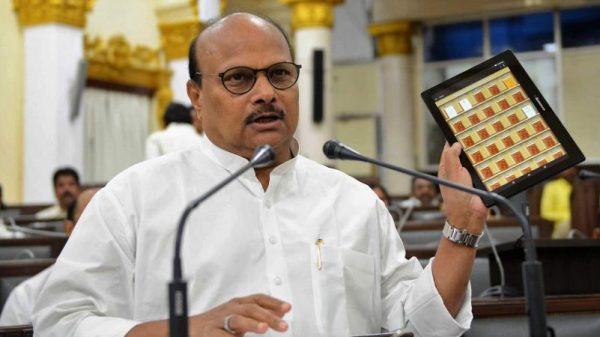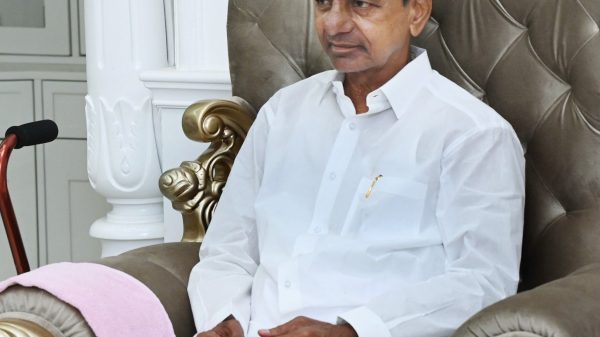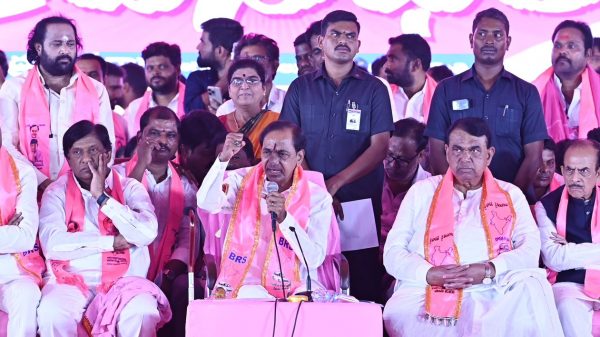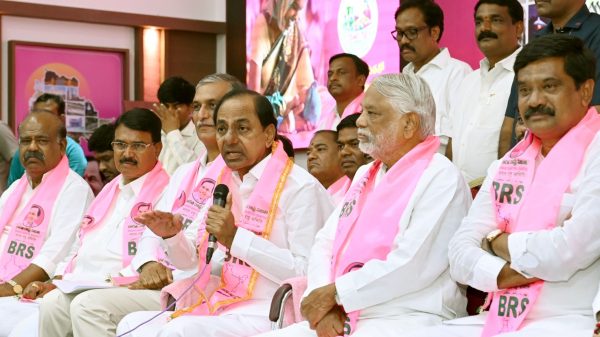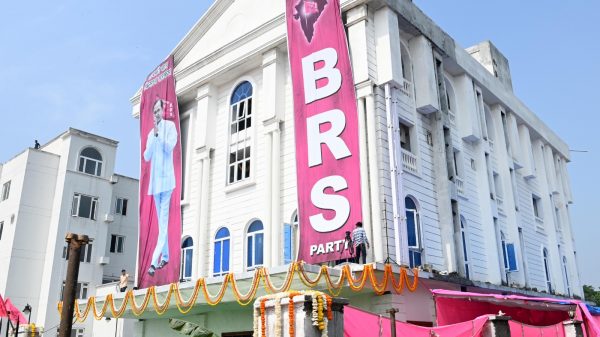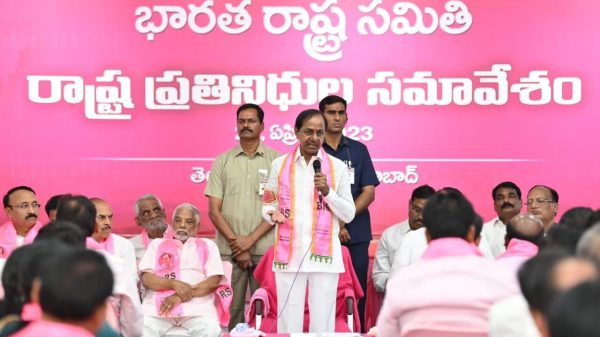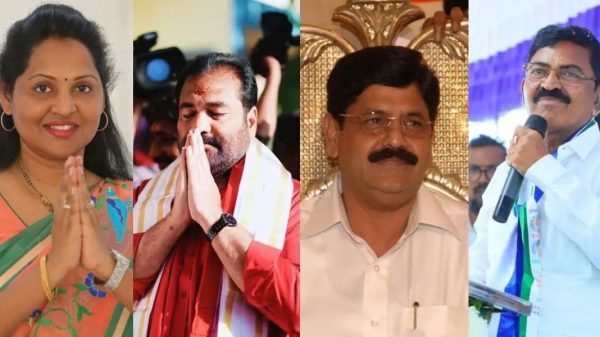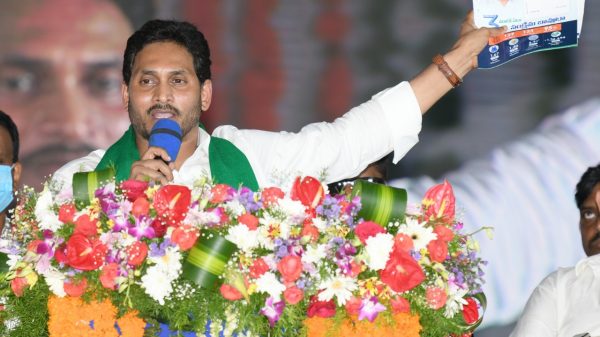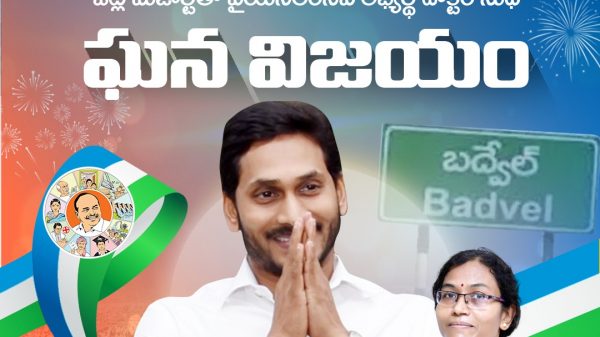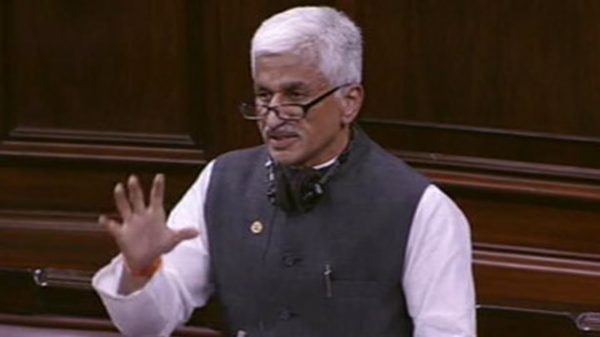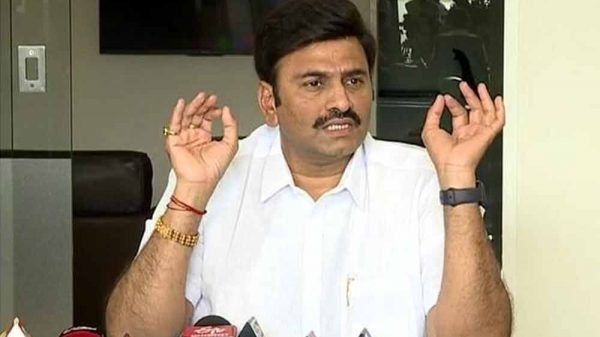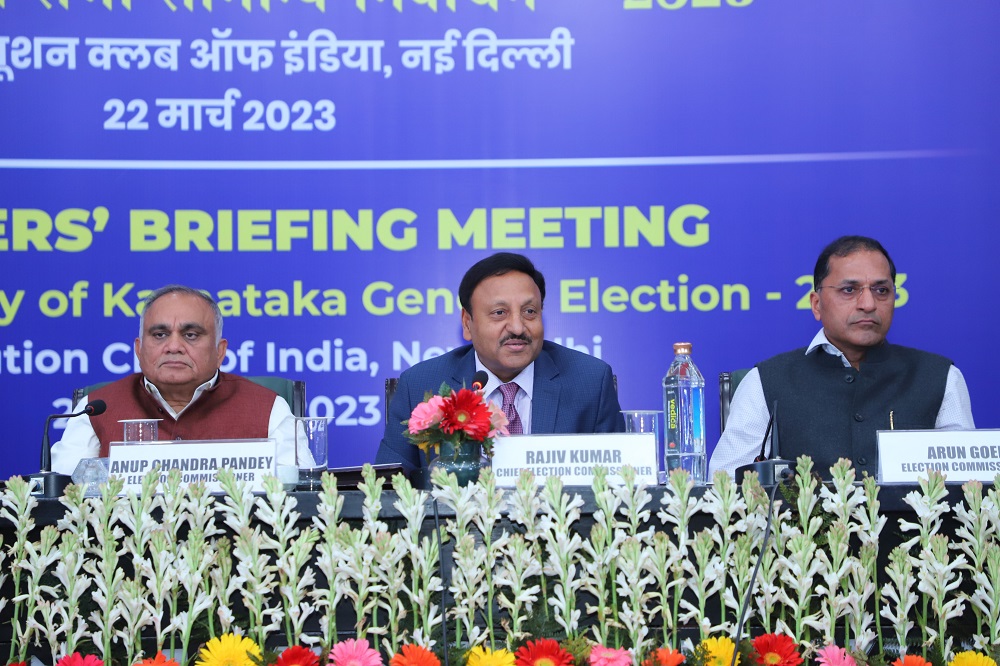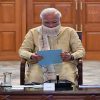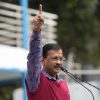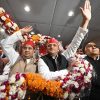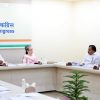NEW DELHI: Assembly elections in Karnataka will be held on May 10 and the results will be declared on May 13, the Election Commission announced on Wednesday.
Addressing a press conference here, Chief Election Commissioner Rajiv Kumar said the notification for the elections to the 224-member assembly will be issued on April 13 and the last date for filing nomination papers will be April 20.
Kumar said the nomination papers will be scrutinised on April 21 and the last date for withdrawal of nominations will be April 24.
Kumar said the elections have been scheduled on a Wednesday, and not on a Monday or Friday, to encourage greater participation of voters. The ruling BJP and Congress have already launched spirited campaigns for the elections.
The term and strength alongwith seats reserved for Scheduled Castes and Scheduled Tribes of the Assembly Constituency of Karnataka, as determined by the Delimitation of Parliamentary and Assembly Constituencies Order, 2008, are as under:
| Name of State | Term of Assembly | No. of Assembly Seats | Reserved for SCs | Reserved for STs |
| Karnataka | 25th May, 2018 to 24th May, 2023 | 224 | 36 | 15 |
Election Commission of India (hereinafter ECI) is committed to conduct free, fair, participative, accessible, inclusive and safe election to the Legislative Assembly of Karnataka before the cessation of its term, in exercise of the authority and powers conferred upon under Article 324 read with Article 172 (1) of the Constitution of India and Section 15 of the Representation of the People Act, 1951.
ELECTORAL ROLLS-
Commission firmly believes that pure and updated electoral rolls are the foundation of free, fair and credible election. Hence, intensive and sustained focus is placed upon improving its quality, health and fidelity. After the amendment in the Section 14 of the Representation of the People Act, 1950 by the Election Laws (Amendment) Act, 2021, there is a provision of four qualifying dates to enrol as a voter in a year. Accordingly, Commission has conducted the Special Summary Revision of Electoral Roll in Karnataka with reference to 01.01.2023, as the qualifying date, which is the closest qualifying date. After time-bound completion of Special Summary Revision of Electoral Rolls with reference to 01.01.2023 as the qualifying date, the final publication of electoral roll has been done on 5th January, 2023.
As per latest data of electoral roll, the number of electors in the State of Karnataka is:
| Name of State | No. of General Electors | No. of Service Voters | Total No. of electors as per electoral rolls |
| Karnataka | 5,23,63,948 | 47,609 | 5,24,11,557 |
Number of enrolments of young electors who attained the age of 18 years between 2nd January, 2022 and 1st January, 2023:
| Name of State | 18+ electors |
| Karnataka | 9,58,806 |
Number of Electors marked as PwD, Third Gender and Senior Citizen (80+), in the State of Karnataka are:
| Name of State | Total PwD Electors | Total Third Gender | Total Senior Citizens (80+) |
| Karnataka | 5,60,908 | 4751 | 12,15,142 |
The Commission, in order to maximise participation from all strata of society and improve the health of electoral roll has taken all possible efforts to:
Ensure maximum enrolment of vulnerable groups like PwDs, transgender and sex workers by collaborating with reputed CSOs. For example, engage with NACO (National AIDS control organisation) to ensure maximum enrolment of sex workers.
Remove Logical Errors, Demographic Similar Entries and Photo Similar Entries in the electoral roll with the use of software tools after following proper field verification and Statutory processes.
Focus on the enrolment of young voters especially who attained the qualifying age on 1st January, 2023.
Rationalise Polling Stations with due diligence. Each and every polling station has been physically visited by Senior Officers and Shifting of polling stations in new and better infrastructure building has also been considered after following due procedures.
Other Government databases like data bases of Social Welfare Department, SACO etc for vulnerable groups of citizens, as benchmark, were considered for enhanced registration of these group.
The Commission enforces the Assured Minimum Facilities along with accessibility friendly infrastructure for PWDs and senior citizens in the polling stations, CEOs/DEOs have been directed to create permanent infrastructure such as ramps at the polling stations.
Polling Locations with 3 or more Polling Stations have been planned for separate entry and exit so as to avoid any untoward incidences related to any epidemic or public order.
The Commission has encouraged the DEOs to use eco-friendly material and exhibit local culture and art to create Model Polling Stations. Each District should have at least one such Model Polling Station, as far as possible.
List of 80+, PwDs etc. has been prepared and a communication of respect/recognition has also been sent to make them feel important part of society.
2. Photo Electoral Rolls and Electors Photo Identity Cards (EPIC)-
Photo Electoral Rolls will be used during the General Election of Karnataka. EPIC is one of the documents for establishing the identity of elector at the time of voting. All out efforts are being made to ensure 100% delivery of EPIC to all newly registered electors before the last date of filing nomination.
3. Voter Information Slips (VIS)
To facilitate voters in knowing the serial number of electoral roll in their polling station, date of poll, time etc., Commission has decided to issue ‘Voter Information Slip’. Voter Information Slip will include information like Polling Station, Date, Time etc. with QR code but not the photograph of the voter. Voter Information Slips will be distributed at least 5 days before the date of poll to all enrolled electors, by the District Election Officer. However, Voter Information Slip will not be allowed as proof of identity of voters. It may be recalled that the Commission had discontinued Photo Voter Slips as an identity proof with effect from 28th February, 2019.
4. Braille Voter Information Slips:
To ensure ease of participation and active engagement of Persons with Disabilities (PWDs) in the electoral process, Commission has directed to issue Accessible Voter Information Slips with Braille Features to Persons with Visual Impairment, alongwith normal Voter Information Slips.
5. Voter Guide:
In these elections, a Voter Guide (in Hindi/English/Local Language) shall be provided to every elector’s household ahead of elections, giving them information about the date and time of polls, contact details of the BLOs, important websites, helpline numbers, documents required for identification at the polling station besides other important information including the Do’s and Don’ts for voters at the polling station. This Voter Guide Brochure will be distributed along with Voter Information Slips by the BLOs.
6. Identification of Voters at Polling Stations –
For identification of voters at Polling Station, the Voter shall present his EPIC or any of the following identification documents approved by the Commission:
Aadhaar Card,
MNREGA Job Card,
Passbooks with photograph issued by Bank/Post Office,
Health Insurance Smart Card issued under the scheme of Ministry of Labour,
Driving License,
PAN Card,
Smart Card issued by RGI under NPR,
Indian Passport,
Pension document with photograph,
Service Identity Cards with photograph issued to employees by Central/State Govt./PSUs/Public Limited Companies, and
Official identity cards issued to MPs/MLAs/MLCs and
Unique Disability ID (UDID) Card, M/o Social Justice & Empowerment, Government of India
7. Polling Stations and Special Facilitation-
(i) Maximum No. of electors in Polling Station
There shall be maximum 1500 electors in a polling station. The change in the number of Polling Stations in the State are as follows:
| Name of State | No. of Polling
Stations in 2018
|
No. of Polling Stations in 2023 |
| Karnataka | 58,008 | 58,282 |
- Assured Minimum Facilities (AMF) at Polling Stations: Commission has issued instructions to the Chief Electoral Officer of Karnataka to ensure that every Polling Station needs to be on ground floor and, shall have good access road leading to polling station building and is equipped with Assured Minimum Facilities (AMF) like drinking water, waiting shed, toilet with water facility, adequate arrangements for lighting, ramp of proper gradient for the PwD electors and a standard voting compartment etc. The Commission has directed CEO/DEOs to take efforts to make permanent ramp and permanent infrastructure at every polling stations.Accessible Election – Facilitation for Persons with Disabilities (PwDs) and Senior Citizens:
In Karnataka all polling stations are located at ground floor and ramps with proper gradient are provided for the convenience of differently abled electors and Senior Citizens with wheelchairs. Further, in order to provide targeted and need-based facilitation to differently-abled voters, Commission has directed that all Persons with Disabilities and Senior Citizens in an Assembly Constituency are identified and tagged to their respective Polling Stations and necessary disability-specific arrangements made for their smooth and convenient voting experience on poll day. Identified PwD and Senior Citizens electors will be assisted by volunteers appointed by RO/DEO. Special facilitation will be made for PwD and Senior Citizens electors at Polling Stations. Also, it has been directed that differently abled electors & Senior Citizens are given priority for entering polling booths, provision be made for designated parking spaces close to the entrance of polling station premise and special facilitation extended to electors with speech and hearing impairment. Special focus has been laid on sensitization of polling personnel regarding special needs of the differently abled electors.Commission has directed the Chief Electoral Officer (CEO) that there should be proper transport facility for PwD and Senior Citizens electors in each and every polling station on the day of poll. The PwD electors can request for wheelchair facility by registering on Saksham-ECI App.At the Polling Station, visually impaired persons can take a companion along with him/her to cast his/her vote on his/her behalf as provided in Rule 49 N of the Conduct of Election Rules, 1961.
Besides, Dummy Ballot Sheets in Braille are available in Polling Stations. Any visually impaired voter can use this sheet and after studying content of this sheet can cast his/her vote on his/her own using Braille facility on Ballot Units of EVMs without any help from companion.
Voter Facilitation Posters:
In order to fulfil the statutory requirements under Rule 31of the Conduct of Elections Rules, 1961 and to provide accurate and relevant information for voter awareness and information at each polling station, the Commission has also directed that uniform and standardized Voter Facilitation Posters (VFP) [total of FOUR (4) kind of Posters i.e. 1.Polling Station Details, 2.List of Candidates, 3.Do’s and Don’ts and 4. Approved Identification Documents & How to Vote] shall be prominently displayed at all Polling Stations.Voter Assistance Booths (VAB):
Voter Assistance Booths shall be set up for every polling station location, having a team of BLO/officials in order to assist voters to correctly locate her/his polling booth number and serial number in the electoral roll of that concerned polling booth. The VABs will be set up with prominent signage and in such a manner that it will be conspicuous to the voters as they approach the polling premise/building to enable them to seek required facilitation on poll day.Alphabetic locator (as per English alphabet) generated with ERO Net is placed at VAB to search the name easily and to know the serial number in the Electoral Roll.
Standardised Voting Compartment to ensure Secrecy of Voting:
In order to maintain the secrecy of vote at the time of poll and to achieve uniformity in use of voting compartments, Commission revised its instructions on 15th November, 2016 and increase the height of the Voting Compartments to 30 inches and also directed that the Voting Compartment should be placed on a table whose height shall be 30 inches. Only corrugated plastic sheet (flex board) of steel-grey colour, which is completely opaque and reusable, shall be used for making the voting compartments. The Commission hopes that the use of these standardized and uniform Voting Compartments in all the polling booths will translate into greater voter facilitation, ensure absolute secrecy of vote and eliminate aberrations and non-uniformity in the preparation of Voting Compartment inside the polling booths.The voting compartments shall also be pasted with self-adhesive stickers on three sides of the voting compartment depicting name of election, PC/AC Number & name and P.S number and Name of year etc.
8. Initiatives for PwD Voters, 80+ Senior Citizens, Electors employed in essential services and COVID suspect/affected voters:
Rule 27A of the Conduct of Elections Rules, 1961 has been amended vide Notifications dated 22.10.2019 and 19.06.2020. By the said two amendments “Absentee voters” have become entitled to vote by postal ballot. “Absentee Voter” has been defined in clause (aa) of Rule-27A of the Conduct of Elections Rules, 1961, and includes person who is employed in essential services, senior citizens (80+), Persons with disability (with benchmark or above disability) and COVID 19 suspect or affected persons. The category of essential services is notified by the Election Commission under Section 60(C) of the RP Act, 1951 in consultation with the Government.
The following procedure have been specified in the existing Guidelines for Voting through postal ballot by Absentee Voters in the category of Senior Citizens, PwDs and Covid-19 suspect or affected persons:-(i) An Absentee Voter wishing to vote by postal ballot has to make application to the Returning Officer (RO) of the constituency concerned, in Form-12D, giving all requisite particulars. Such application seeking postal ballot facility should reach to the RO during the period from date of announcement of election to five days following the date of notification of the election concerned.
(ii) In case of absentee voters belonging to PwD category (AVPD), who opt for postal ballot, application (Form 12D) should be accompanied by a copy of benchmark disability certificate specified by the concerned appropriate Government, under the Rights of Persons with Disabilities Act, 2016.
(iii) Distribution of Form 12D by BLO:
BLO will visit to the houses of the absentee voters in category of AVSC, AVPD and AVCO, as per details provided by the RO, in the Polling Station area and deliver Form 12D to the concerned electors and obtain acknowledgements from them.
If an elector is not available, BLO shall share his/her contact details and revisit to collect it within five days of the notification.
The elector may or may not opt for Postal Ballot. If he/she opts for Postal Ballot, then the BLO shall collect the filled-in-Form 12D from the house of the elector within five days of the notification and deposit with the RO forthwith.
Sector Officer shall supervise the process of distribution and collection of Form 12D by BLOs under the overall supervision of RO.
(iv) Further, the RO shall share list of all such PwD and 80+ electors, whose applications in Form 12D for availing Postal Ballot facility have been approved by him, with the Contesting Candidates of recognized political parties in printed hardcopy.II. A polling team comprised of 2 polling officials along with a videographer and security will then go to the elector’s house along with a Voting Compartment and get the elector to vote on the Postal Ballot maintaining complete secrecy of vote. Candidates will be provided a list of these electors in advance and will also be provided the schedule of voting and the route chart of the polling parties so that they can send their representatives to witness the polling procedure. Postal ballots will then be stored securely by the Returning Officer.
III. This is an optional facility and does not involve any Postal Department for mailing arrangement.
IV. Commission has directed the Chief Electoral Officer of Karnataka to take necessary steps for the dissemination of information and extending facilitation to the above categories of Voters.9. Polling stations managed by women and Persons with Disabilities-
As part of its firm commitment towards gender equality and greater constructive participation of women in the electoral process, the Commission has also directed that, to the extent possible, at least one polling station each managed exclusively by women and Persons with Disabilities shall be set up in every Assembly Constituency in poll going States of Karnataka. In such women manged Polling stations, all election staff, including police and security personnel, will be women. Minimum one Model Polling Station per Assembly Constituency shall also be set up using and depicting local material and art forms.Moreover, as a new initiative, the Commission has decided that at least one Polling Station per district shall be managed by the Polling teams consisting of available youngest eligible employee of that district.
10. Nomination Process: – Brief description about filing of nomination are as given below:
I. Additional option to facilitate online mode in nomination has been provided:
Nomination form will also be available online on the website of CEO/DEO. Any intending candidate may fill it online and its print may be taken for submission before the Returning Officer as specified in Form-1 (Rule-3 of Conduct of Election Rules 1961).
(ii) Affidavit may also be filled online on the website of CEO/DEO, its print can be taken and after notarization it may be submitted along with the nomination form before the Returning Officer.(iii) Candidate may deposit security money through online mode at the designated platform. However, a candidate will continue to have the option of deposit in cash in the treasury.
(iv) Candidate may also exercise the option to seek his/her elector certification for the purpose of nomination online.
II. Further, Commission has directed the following:
Returning Officer’s chamber should have sufficient space to perform the functions of nomination, scrutiny and symbol allocation.
Returning Officer should allot staggered time in advance to prospective candidates.
(iii)All steps required to be taken for the submission of nomination form and affidavit shall continue to operate as per the provisions contained in the Representation of the People Act, 1951.11. Affidavits of Candidates-
All Columns to be filled in:In pursuance of the judgment dated 13thSeptember, 2013 passed by the Supreme Court in Writ Petition (C) No. 121 of 2008 (Resurgence India Vs Election Commission of India and Another), which among other things makes it obligatory for the Returning Officer to check whether the information required is fully furnished (by the candidate) at the time of filing of affidavit with the nomination paper, the Commission has issued instructions that in the affidavit to be filed along with the nomination paper, candidates are required to fill up all the columns. If any column in the affidavit is left blank, the Returning Officer will issue a notice to the candidate to file the revised affidavit with all columns duly filled in. After such notice, if a candidate still fails to file affidavit complete in all respects, the nomination paper will be liable to be rejected by the Returning Officer at the time of scrutiny.
Changes in the Format of Nomination Form and Affidavit in Form 26:
Vide Notifications dated 16th September, 2016 and 7th April, 2017, Part IIIA of Nomination Forms 2A & 2B and Part II of Nomination Forms 2C, 2D & 2E have been amended. Affidavit in Form 26 has also been amended vide Notification dated 26th February, 2019 making provisions of (i) Mandatory disclosure of ‘PAN’ for candidates who have been allotted the number or to state clearly that ‘No PAN allotted’ for those candidates without a PAN; (ii) Total income shown in the Income Tax return filed during the last 5 years to be declared for candidate, spouse and HUF; and dependents (iii) Details to be provided of Assets (Movable/immovable) held abroad including beneficial interest in any offshore entity/trust by self, spouse, HUF or Dependents. Copy of amended Nomination Forms and Affidavit are available on the Commission’s website https://eci.gov.in> Menu > Candidate nomination & other Forms.
12. Candidates with Criminal Cases-
Candidates with criminal antecedents are required to publish information in this regard in newspapers and through television channels on three occasions during the campaign period. A political party that sets up candidates with criminal antecedents is also required to publish information about criminal background of its candidates, both on its website and also in newspapers and television channels on three occasions.Commission vide its letter No. 3/4/2019/SDR/Vol.IV dated 16th September, 2020 has directed that the period specified will be decided with three blocks in the following manner, so that electors have sufficient time to know about the background of such candidates:
Within first 4 days of date of withdrawal of Nominations.
Between next 5th- 8thdays.
From 9th day till the last day of campaign (the second day prior to date of poll)
(Illustration: If the last date for withdrawal is 10th of the month and poll is on 24th of the Month, the first block for publishing of declaration shall be done between 11th and 14th of the Month, second and third blocks shall be between 15th and 18th and 19th and 22nd of that Month, respectively.)This requirement is in pursuance of the judgment of the Hon’ble Supreme Court in Writ Petition(C) No. 784 of 2015 (Lok Prahari Vs. Union of India & Others) and Writ Petition(Civil) No. 536 of 2011 (Public Interest Foundation & Ors. Vs. Union of India & Anr.).
13. Political Parties setting up candidates with Criminal Cases-
In pursuance of the Hon’ble Supreme Court Order dated 13.02.2020 in Contempt Petition (C)No. 2192 of 2018 in WP(C) No. 536 of 2011, it is mandatory for political parties (at the Central and State election level) to upload on their website detailed information regarding individuals with pending criminal cases (including the nature of the offences, and relevant particulars such as whether charges have been framed, the concerned Court, the case number etc.) who have been selected as candidates, along with the reasons for such selection, as also as to why other individuals without criminal antecedents could not be selected as candidates. The reasons as to selection shall be with reference to the qualifications, achievements and merit of the candidate concerned, and not mere “winnability” at the polls.This information shall also be published in:
(a) One local vernacular newspaper and one national newspaper;
(b) On the official social media platforms of the political party, including Facebook & Twitter.
These details shall be published within 48 hours of the selection of the candidate and not prior to two weeks before the first date of filing of nominations. The political party concerned shall then submit a report of compliance with these directions with the Election Commission within 72 hours of the selection of the said candidate. If a political party fails to submit such compliance report with the Election Commission, the Election Commission shall bring such non-compliance by the political party concerned to the notice of the Supreme Court as being in contempt of this Court’s orders/directions. The Commission’s instructions issued vide letter no. 3/4/2020/SDR/Vol.III dated 6th March, 2020 available on the Commission’s website may be seen.
The Hon’ble Supreme Court in Brajesh Singh v. Sunil Arora & Ors. [Contempt Petition (C) No. 656/2020 in Contempt Petition (C) No. 2192/2018 in WP(C) No. 536/2011)] issued some additional directions vide judgment dated 10.08.2021, which has been circulated vide Commission’s letter No. 3/4/SDR/VOL.I dated 26.08.2021, which is available on the Commission’s website. Following are the directions which are concerned with the political parties: –
Political parties are to publish information regarding criminal antecedents of candidates on the homepage of their websites, thus making it easier for the voter to get to the information that has to be supplied. It will also become necessary now to have on the homepage a caption which “candidates with criminal antecedents”;
We clarify that the direction in paragraph 4.4 of our Order dated 13.02.2020 be modified and it is clarified that the details which are required to be published, shall be published within 48 hours of the selection of the candidate and not prior to two weeks before the first date of filing of nominations; and
We reiterate that if such a political party fails to submit such compliance report with the ECI, the ECI shall bring such noncompliance by the political party to the notice of this Court as being in contempt of this Court’s Orders/directions, which shall in future be viewed very seriously.
14. District, AC Level and Booth Level Election Management Plan-The District Election Officers have been asked to prepare a comprehensive District Election Management Plan in consultation with SSPs/SPs and Sector Officers, including the route plan and the communication plan for conduct of elections. These will be vetted by the Observer, taking into account vulnerability mapping exercise and mapping of critical polling stations, in accordance with Election Commission of India’s extant instructions.
15. Communication Plan-
Commission attaches great importance to preparation and implementation of a perfect communication plan at the district/constituency level for the smooth conduct of elections and to enable concurrent intervention and mid-course correction on the poll day. For the said purpose, the Commission has directed the Chief Electoral Officer of Karnataka to coordinate with the officers of Telecommunication Department in the State headquarter, BSNL authorities, the representatives of other leading service providers in the State so that network status in the State is assessed and communication shadow areas be identified. The CEOs have also been instructed to prepare the best communication plan in their States and make suitable alternate arrangements in the communication shadow areas by providing Satellite Phones, Wireless sets, Special Runners etc.
16. Eco-friendly elections-
Election Commission has issued advisories on several occasions urging political parties and candidates to avoid single-use plastic and non-biodegradable material in their election campaign activities.The Commission has been asking all the political parties to use only environment-friendly material for campaign purposes since long. In this connection, on 26.02.2019, Commission again instructed that all political parties should take adequate steps and measures not to use single-use plastic as campaign materials (posters, banners etc.,) during the elections in the interest of human health and environment. Plastic Waste Management Amendment Rules, 2021 notified by the M/o Environment, Forest and Climate Change on 12.08.2021 has also been circulated to all CEOs asking them to bring it to the notice of all stake holders including candidates and political parties.
Further, NGT has also asked all concerned for close monitoring of Election Commission of India’s instructions in this regard.
17. Model Code of Conduct-
Model Code of Conduct comes into effect immediately from the announcement of schedule. All the provisions of the Model Code will apply to the whole of Karnataka with regard to all candidates, political parties and the government of the said State. The Model Code of Conduct shall also be applicable to the Union Government in so far as announcements/policy decisions pertaining to/for Karnataka are concerned.The Commission has made elaborate arrangements for ensuring the effective implementation of MCC Guidelines. Any violation of these Guidelines would be strictly dealt with and the Commission re-emphasizes that the instructions issued in this regard from time to time should be read and understood by all political parties, contesting candidates and their agents/representatives, to avoid any misgivings or lack of information or inadequate understanding/interpretation. The Governments of the poll-bound States have also been directed to ensure that no misuse of official machinery/position is done during the MCC period.
The Commission has also issued instructions for swift, effective and stringent action for enforcement of Model Code of Conduct during the first 72 hours of announcement of the election schedule and also for maintaining extra vigilance and strict enforcement action in the last 72 hours prior to the close of polls. These instructions have been issued in the form of Standard Operating Procedures (SOPs) for compliance by the field election machinery.
18. Videography/ Webcasting/CCTV Coverage-
All critical events will be video-graphed. District Election Officers will arrange sufficient number of video and digital cameras and camera teams for the purpose. The events for videography will include filing of nomination papers and scrutiny thereof, allotment of symbols, First Level Checking, preparations and storage of Electronic Voting Machines, important public meetings, processions etc. during election campaign, process of dispatching of postal ballot papers, polling process in identified vulnerable polling stations, storage of polled EVMs and VVPATs, counting of votes etc. Additionally, CCTVs will be installed at important Border Check Posts and Static Check Points for effective monitoring and surveillance. Commission has directed that arrangements for web casting shall be done in critical polling stations and all polling stations in vulnerable areas or at least in 50% of total polling stations including auxiliary polling stations, whichever is higher.19. Measures to Prevent Public Nuisance-
The Commission has directed that the use of public address system or loudspeakers or any sound amplifier, whether fitted on vehicles of any kind whatsoever, or in static position used for public meetings for electioneering purposes, during the entire election period starting from the date of announcement of election and ending with the date of declaration of results, shall not be permitted at night between 10:00 PM to 06:00 AM.Further, no loudspeakers fitted on vehicles of any kind or in any other manner whatsoever shall be permitted to be used during the period of 48 hours ending with the hour fixed for the conclusion of the poll in any polling area.
20. Advisory to Political Parties regarding silence period-
For reviewing the working of Section 126 in the context of advancements in communication technology and rise of social media, a Committee was constituted by the Commission with the mandate of studying the provisions of Section 126 of the Representation of the People Act, 1951 and other related provisions and to make suitable recommendation in this regard. The Committee submitted its report to the Commission on 10th January, 2019. Among other proposals, the Committee has proposed for an advisory to political parties for compliance with the letter and spirit of the provisions of Section 126. The Commission called upon all political parties to instruct and brief their leaders and campaigners to ensure that they observe the silence period on all forms of media as envisaged under Section 126 of the RP Act, 1951, and their leaders and cadres do not commit any act that may violate the spirit of Section 126.In a multi-phased election, the silence period of last 48 hours may be on in certain constituencies while campaign is ongoing in other constituencies. In such event, there should not be any direct or indirect reference amounting to soliciting support for parties or candidates in the constituencies observing the silence period.
During the silence period, star campaigners and other political leaders should refrain from addressing the media by way of press conferences and giving interviews on election matters.
21. Law and Order, Security Arrangements and Deployment of Forces-
Conduct of elections involves elaborate security management, which includes not just the security of polling personnel, polling stations and polling materials, but also the overall security of the election process. Central Armed Police Forces (CAPFs) are deployed to supplement the local police force in ensuring a peaceful and conducive atmosphere for the smooth conduct of elections in a free, fair and credible manner.Based on the assessment of the ground situation, Central Armed Police Forces (CAPFs) and State Armed Police (SAP) drawn from other States will be deployed during the election. The CAPFs shall be deployed well in advance for area domination, route marches in vulnerable pockets, point patrolling and other confidence building measures to re-assure and build faith in the minds of the voters, especially those belonging to the weaker sections, minorities etc. CAPFs shall be inducted well in time for undertaking area familiarization and hand-holding with local forces and all other standard security protocols for movement, enforcement activities etc in these areas will be strictly adhered to.
The CAPFs/SAP shall also be deployed in Expenditure Sensitive Constituencies and other vulnerable areas and critical polling stations as per the assessment of ground realities by the CEOs of Karnataka, in consultation with various stakeholders. On the eve of poll, the CAPFs/SAP shall take position and control of the respective polling stations and will be responsible for safeguarding the polling stations and for providing security to the electors and polling personnel on the poll day. Besides, these forces will secure the strong rooms where EVMs and VVPATs are stored and for securing the counting centres and for other purposes, as required. The entire force deployment in the assembly segments shall be under the oversight of the Central Observers deputed by the Commission.
To ensure optimum and effective utilization of State Police Official and CAPFs, Commission has directed to constitute a Committee of CEO, State Police Nodal Officer and State CAPF Coordinator to jointly decide the State Election Security Deployment Plan and to ensure randomization of State Police.
22. Protection to Electors of SC/ST and Other Weaker Sections-
As per Section 3 (1) of Scheduled Castes and Scheduled Tribes (Prevention of Atrocities) Act, 1989 (as amended in 2015), whoever, not being a member of a Scheduled Caste or Scheduled Tribe, forces or intimidates a member of a Scheduled Caste or a Scheduled Tribe not to vote or to vote for a particular candidate or to vote in a manner other than that provided by law, or not to stand as a candidate etc., shall be punishable with imprisonment for a term which shall not be less than six months but which may extend to five years and with fine. The Commission has asked Karnataka to bring these provisions to the notice of all concerned for prompt action. In order to bolster the confidence of the voters hailing from vulnerable sections especially SCs, STs etc. and enhance their conviction and faith in the purity and credibility of the poll process, CAPFs/SAP shall be extensively and vigorously utilized in patrolling and conducting route marches and undertaking other necessary confidence building measures under the supervision of the Central Observers.23. Election Expenditure Monitoring-
Comprehensive instructions for the purpose of effective monitoring of the election expenditure of the candidates have been issued, which include deployment of Expenditure Observers, Assistant Expenditure Observers, formation of Flying Squads (FS), Static Surveillance Teams (SST), Video Surveillance Teams (VST), Video Viewing Teams (VVT), Account Teams (AT), Media Certification & Monitoring Committee(MCMC), District Expenditure Monitoring Committee (DEMC) involvement of State Police, State Excise, Investigation Directorate of Income Tax Deptt., CBIC, Enforcement Directorate, Financial Intelligence Unit (FIU-IND), DRI, RPF, BCAS, CISF, BSF, Assam Rifles, ITBP, ICG, Commercial Tax Department, Narcotics Control Bureau and Department of Post. State Excise Department has been asked to monitor production, distribution, sale and storage of liquor and inducements in the form of free goods during the election process. The functioning and operations of the Flying Squads/Mobile Teams shall be closely monitored using GPS Tracking/and the use of c-VIGIL App.For greater transparency and for ease of monitoring of Election Expenses, candidates would be required to open a separate bank account and incur their election expenses from only that account. The Investigation Directorate of Income Tax Dept. has been asked to activate Air Intelligence Units in the airports of the State and also to gather intelligence and take necessary action to check movement of large sums of money in Karnataka. Control room and Complaint Monitoring Centre with 24 hours toll free numbers shall be operative during the entire election process. District Election Officers (DEOs) have been directed to obtain unusual and suspicious cash withdrawal or deposit of cash exceeding Rs. 1 Lakh from banks for due verification followed by necessary action. If the amount is more than Rs. 10 Lakh, then DEOs shall pass on such information to Income Tax Department for necessary action. FIU-IND has been requested to share Cash Transaction Reports (CTRs) and Suspicious Transaction Reports (STRs) with CBDT for effective monitoring of the election expenditure of the candidates.
Some new initiatives taken by the Commission to strengthen the Expenditure Monitoring mechanism are:
Standard Operating Procedure (SOP) for seizure and release of cash: For the purpose of maintaining purity of elections, the Election Commission of India has issued a Standard Operating Procedure for Flying Squads and Static Surveillance Teams, constituted for keeping vigil over excessive campaign expenses, distribution of items of bribe in cash or in kind, movement of illegal arms, ammunition, liquor, or antisocial elements etc. in the constituencies during election process.
Furthermore, in order to avoid inconvenience to the public and also for redressal of their grievances, if any, the Commission has issued instruction no. 76/Instructions/EEPS/2015/ Vol-II dated 29.05.2015 stating that a committee shall be formed comprising three officers of the District, namely, (i) CEO, Zila Parishad/CDO/P.D, DRDA (ii) Nodal Officer of Expenditure Monitoring in the District Election Office (Convener) and (iii) District Treasury Officer. The Committee shall suo-moto examine each case of seizure made by the Police or SST or FS and where the Committee finds that no FIR/Complaint has been filed against the seizure or where the seizure is not linked with any candidate or political party or any election campaign etc., as per SOP, it shall take immediate steps to order release of such cash etc. to such persons from whom the cash was seized after passing a speaking order to that effect. In no case, shall any matter relating to seized cash/seized valuables shall be kept pending in Malkhana or treasury for more than 7 (seven) days after the date of poll, unless any FIR /Complaint is filed.
Accounting of the expenditure incurred for campaign vehicles – It has come to the notice of the Commission that the candidates take permission from the Returning Officer for use of vehicles for campaign purpose, but some candidates do not show the vehicle hiring charges or fuel expenses in their election expenditure account. Therefore, it has been decided that unless the candidate intimates the R.O. regarding withdrawing vehicles from campaigning, the notional expenditure on account of campaign vehicles will be calculated based on the number of vehicles for which permission has been granted by the Returning Officer.
(iii)Account Reconciliation Meeting: In order to reduce litigation relating to expenditure accounts of contesting candidates, a reconciliation meeting will be convened by the DEOs before final submission of the accounts, on the 26th day after the declaration of the results.
(iv) Accounting of Expenditure on publicity of criminal antecedents: In Pursuance of Hon’ble Supreme Court Judgement dated 25.09.2018 in WP(C) No. 536 of 2011, the candidates as well as the concerned political parties shall issue a declaration, in the format prescribed, in widely circulated newspapers and on electronic media in the state regarding the criminal antecedents of the candidates at least thrice after filing of the nomination papers. Candidates are required to maintain expenditure incurred by them in this regard in their accounts and the same shall be reflected in their Abstract Statement of election expenses (Schedule 10) to be submitted by them to the concerned DEOs along with their accounts of election expenses within 30 days of declaration of results. Political parties are also required to show the amount incurred by them in this regard in their Statement of Election Expenses (Schedule 23A, 23B) to be submitted by them to ECI (recognised political party)/CEO (unrecognised political party) within 75 days of completion of Assembly Election.
Expenditure incurred on candidates’ Booth/Kiosk and on TV/Cable Channel/Newspaper owned by party for promoting the electoral prospects of the candidate in the account of the candidate:
The Commission, on further examination of the relevant provisions of section 77(1) of the R. P. Act, 1951, had decided that the candidates’ booths set up outside the polling stations should hereinafter be deemed to have been set up by the candidates as part of their individual campaign and not by way of general party propaganda and as such all expenditure incurred on such candidates’ booths shall be deemed to have been incurred/authorized by the candidate/his election agent so as to be included in his account of election expenses.
Further, the Commission, after taking into consideration various references/complaints from various sources in the above matter, has directed that if the candidate(s) or their sponsoring parties utilize TV/Cable Channels/Newspapers owned by them for promoting the electoral prospects of the candidate, the expenses for the same, as per standard rate cards of the channel/newspaper, have to be included by the candidate concerned in his Election Expenditure Statement, even if they actually do not pay any amount to the channel/newspaper. In pursuance of the Commission’s aforesaid decisions, Schedule 6 and Schedule 4 & 4A in Abstract Statement of Election Expenses have been amended and incorporated accordingly in the Compendium of Instructions on Election Expenditure Monitoring.
Accounting of Expenditure on Virtual Campaign:
Candidates are required to maintain expenditure incurred by them in this regard in their accounts and the same shall be reflected in their Abstract Statement of election expenses (Schedule 11) to be submitted by them to the concerned DEOs along with their accounts of election expenses within 30 days of declaration of results. Political parties are also required to show the amount incurred by them in this regard in their Statement of Election Expenses (Schedule 24A, 24B) to be submitted by them to ECI (recognised political party)/CEO (unrecognised political party) within 75 days of completion of Assembly Election.Final Accounts by Political Parties:
The National and State Recognised Political Parties are required to submit their Election Expenditure Statements with the Election Commission of India, New Delhi whereas Registered Unrecognised Political Parties are required to submit their Election Expenditure Statements with the Chief Electoral Officers of the States concerned where party HQ is situated within 75 days of completion of the Assembly Election. The same shall be uploaded on website for public viewing. For the sake of transparency and reconciliation of accounts of political parties and candidates, the political parties have to file a part Election Expenditure Statement in addition to the final statement of election in respect of lump-sum payments made by the party to the candidate within 30 days after declaration of results of election to Legislative Assemblies in prescribed format.24. Effective use of Media-
(i) Media Engagement:The Commission has always considered Media as an important ally and a potent force multiplier in ensuring an effective and efficient election management. Hence, the Commission has directed CEOs of Karnataka to take the following measures for positive and progressive engagement and interaction with the media:
(a) Regular interaction with the media during elections and maintaining an effective and positive line of communication with the media at all times.
(b) Effective steps to sensitize the media about the Election Code.
(c) Authority letters will be issued to all accredited media for the polling day and day of counting.
Media is also expected to follow all the extant guidelines issued by the Ministry of Health and Family Welfare (MoH&FW) or any other competent authorities regarding COVID containment measures during all their election related coverage.
(ii) Pre-Certification of Political Advertisements and monitoring of suspected cases of paid news:
Media Certification and Monitoring Committees (MCMC) are in place at all the Districts and State level. All political advertisements proposed to be issued on electronic media shall require pre-certification from the concerned MCMC. Political advertisements in all electronic media/TV Channels/Cable Network/Radio including private FM channels/Cinema halls/audio-visual displays in public places/voice messages & bulk SMS over phone and social media & internet websites shall come within the purview of pre-certification. Commission requests all Political Parties/candidates/Media to follow pre-certification instructions.
MCMCs will also keep a strict vigil on suspected cases of paid news in the media and suitable action will be taken in confirmed cases after following all due procedures.
(iii) Use of Social Media in election:
Keeping in view increasing incidents of misuse of Social Media & menace of Paid News and as a result of ECI’s vigorous persuasion, major Social Media Platforms agreed to observe Voluntary Code of Ethics formulated by them in March, 2019. This will be applicable in these elections as well as it was in other recent elections.
The Commission requests all Political Parties and candidates to ensure that their supporters do not indulge in hate speeches and fake news. Strict watch on social media posts is being kept to ensure that the election atmosphere is not vitiated. Media may also play an active role in curbing the menace of fake news.
(iv) Monitoring of Electronic and Social Media:
All the election management related news on all the major national and regional news channels during elections would be monitored vigorously. If any untoward incident or violation of any law/rule is noticed, action would be taken immediately. Reports of monitoring would also be forwarded to the CEOs. Office of CEO will ascertain status on each and every item and file ATR/Status Report.
(v) Media restrictions during silence period and on Exit polls:
Section 126 (1)(b) of the Representation of the People Act, 1951, prohibits displaying any election matter by means, inter alia, of television or similar apparatus, in any polling area during the period of forty-eight hours (silence period) ending with the hour fixed for the conclusion of the poll for any election in that polling area. Election matter referred hereinabove is defined as any matter intended or calculated to influence or affect the result of an election in any electronic media during the period of 48 hours ending with the hour fixed for conclusion of poll in each of the phases of elections.
Section 126A of the R.P. Act 1951, prohibits conduct of Exit poll and dissemination of their results by means of print or electronic media during the period mentioned therein, i.e. between the hour fixed for commencement of poll in the first phase and half an hour after the time fixed for close of poll for the last phase in all the States. Violation of Section 126 of the R.P. Act, 1951 is punishable with imprisonment upto a period of two years, or with fine or both.
All Media houses are advised to follow instructions in this regard keeping its spirit.
25. Training of Election Officials-
India International Institute of Democracy and Election management (IIIDEM) has organized the prescribed training programmes for the forthcoming General Election to the Legislative Assembly of Karnataka: Moreover, Chief Electoral Officer of Karnataka will also be conducting prescribed training.26. Systematic Voters’ Education and Electoral Participation (SVEEP)-
The CEOs/DEOs should carry out targeted SVEEP activities, in the low voter turnout areas. The reasons behind non-voting should be found out and accordingly targeted interventions and efforts need to be taken up. CEOs/DEOs have been asked to identify low voter turnout polling booths in every constituency and reasons behind thereof. They shall personally visit these areas to address the issues and take necessary steps to increase voter turnout.Furthermore, with Booth being the focal point for SVEEP strategy, the Commission has directed the state to strengthen Booth Level Action Plans and to conduct minimum level of SVEEP activities to inform and educate all voters.
27. Deployment of Central Observers-
(i) General Observers
The Commission will deploy IAS officers as General Observers in adequate number to ensure smooth conduct of election. The Observers will be asked to keep a close watch on every stage of the electoral process to ensure free and fair election.(ii) Police Observers
The Commission would deploy IPS officers as Police Observers at District/AC level, depending upon the need, sensitivity and assessment of ground situation of the District/AC, wherever required. They will monitor all activities relating to force deployment, law and order and co-ordinate with Civil and Police administration to ensure peaceful, free and fair election.
(iii) Counting Observers
In addition to the already deployed General Observers, the Commission would also deploy officers as Counting Observers at District/AC Level, depending upon the requirement in consultation with the CEOs of these States. They will oversee the counting centre arrangements and monitor all activities relating to counting of votes.
(iv) Special Observers
In exercise of the plenary powers conferred on it by Article 324 of the Constitution of India, the Commission deploy as required, Special Observers who belong to All India Services and various Central Services.
(v) Expenditure Observers
The Commission has also decided to appoint adequate number of Expenditure Observers who will exclusively monitor the election expenditure of the contesting candidates.
(vi) Micro Observers
As per the extant instructions, General Observers will also deploy Micro Observers, from amongst Central Government/PSUs Officials, to observe the poll proceedings on the poll day in critical/vulnerable polling stations. Micro Observers will observe the proceedings at the polling stations on the poll day, right from the conduct of mock poll, to the completion of poll and the process of sealing of EVMs and VVPATs and other documents so as to ensure that all instructions of the Commission are complied with by the Polling Parties and the Polling Agents. They will report to the General Observers directly regarding any vitiation of the poll proceedings in their allotted polling stations.28. Use of IT in election management –
The Commission has enhanced usage of IT Application, to usher in greater citizen participation and transparency. Following is the brief outline of the IT Applications available for the election management:NVSP & Voter portal:
Through NVSP (https://www.nvsp.in/), a user can avail and access various services such as access the electoral list, apply for voter id card, apply online for corrections in voter’s card, view details of Polling booth, Assembly Constituency and Parliamentary constituency, and get the contact details of Booth Level officer, Electoral Registration Officer among other services.Similarly, to ease the process of form submission, Voter Portal’ (https://voterportal.eci.gov.in/) provides a seamless interface for registration, alteration in entries, deletion, change of address etc. Upon logging into the portal, the citizen is now presented with an interactive interface suggesting selection of choice based upon his previous selection.
Voter Helpline App (VHA):
Citizen can avail and access various services such as apply for voter id card, apply online for corrections in voter’s card, view details of Polling booth, Assembly Constituency and Parliamentary constituency, and get the contact details of Booth Level Officer, Electoral Registration Officer among other services. The application is available on both the Google Play & Apple App Store.Saksham-ECI App:
Saksham-ECI App is meant for Person with Disabilities. It is upgraded version of erstwhile PwD App. The PwD elector can make requests for marking them as PwD, request for new registration, request for migration, request for correction in EPIC details, request for wheelchair. It utilises the Accessibility features of mobile phones for voters with blindness and hearing disabilities. The application is available on both the Google Play & Apple App Store.National Grievances Services Portal:
A National Grievance Service Portal (NGSP) has been developed by the Election Commission. This system has been developed in such a manner that in addition to providing redress to the complaints of the Citizens, Electors, Political Parties, Candidates, Media and Election Officials at National, State and District level, it also serves as a common interface for providing services through a common interface.The application provides for a single interface for handling complaints by the Election officials. All Electoral Officers, District Election Officers, CEO and ECI Officials are part of the system. Thus, issues are directly assigned to the respective user upon registration. The portal can be accessed from the online link here: https://eci-citizenservices.eci.nic.in
cVIGIL Application:
It is an application for filing Model Code of Conduct Violation cases by citizen. cVIGIL provides time-stamped evidentiary proof of the Model Code of Conduct / Expenditure Violation by empowering every citizen to click a photo or video using his or her smartphone. The application is based on GIS technology and the unique feature of auto location provides fairly correct information which can be relied upon by flying squads to navigate to the right spot of incidence and take prompt action. This app prioritizes the speedy and effective actions by authorities and promised users status reports within 100 minutes.The application is available on both the Google Play & Apple App Store.
Know Your Candidate (KYC) Application:
The Election Commission of India has developed Know your Candidate (KYC) Applications for both Android and iOS platforms for informing about “Criminal Antecedents” status of candidates. This allows citizens to browse candidates with/ without Criminal Antecedents and empowers the citizens to know the criminal antecedents of the candidates.The application is available on both the Google Play & Apple App Store.
Voter Turnout App:
Voter Turnout App is used to display estimated provisional voter turnout details of each Assembly Constituency/ Parliamentary Constituency entered by Returning Officer at pre-defined intervals. The Application can also be used by the media to capture estimated provisional voter turnout trend only. However, it must be appreciated that these are provisional estimated data and final turn out data can only be published after arrival of Polling parties and scrutiny of papers. All phases of the elections are displayed through this app. The application is available on both the Google Play & Apple App Store.Results Website and Results Trends TV:
The timely publication of the round-wise information is vital for establishing a single source of authentic data. The counting data entered by respective Returning Officers is available as Trends and Results’ for public view through ECI Results website http://results.eci.gov.in/The results are shown with the Infographics and displayed with auto scroll panels through large display screens outside the counting hall or any public place.
Suvidha Portal: This portal provides different facility to candidates/political parties for online nomination, Permission as given below-
a) Candidate Online Nomination:To facilitate filling of nominations, the Election Commission has introduced an online portal for filling the nomination & affidavit. The Candidate can visit https://suvidha.eci.gov.in/ to create his/her account, fill nomination form, deposit the security amount, check availability of time slot and appropriately plan his visit to the Returning Officer.
Once the application is filled through the online portal, the candidate only needs to take a print out, get it notarized and submit the application along with relevant documents to the Returning Officer in person.
The Online Nomination Facility is an optional facility to facilitate ease of filing and correct filing. The regular offline submission as prescribed under the law shall continue too.
(b) Candidate Permissions module:
Permission module allows the candidates, political parties or any representatives of the candidate to apply online for the permission for meetings, rallies, loudspeakers, temporary offices, and others through SUVIDHA Portal https://suvidha.eci.gov.in/. The Candidates can also track their application status through the same portal.
(c) Suvidha Candidate App:
In view of COVID, the Commission has directed that allocation of public spaces for meetings, rallies must be done using the Suvidha app as far as practicable. The application will be available during elections for Candidates /Political Parties/Agents to download and use to track the nomination and permission status from the Google Play store.
GARUDA App:
GARUDA (Geographical Asset Reconnaissance Unified Digital App) application is developed by the in-house IT team of the Commission with the sole purpose of facilitating the BLOs by integrating all the functions of the BLOs at one place/app. This application was launched on Pan India basis on August 09th 2021. Some components of the said application are:(i) Field verification by BLO
(ii) Collection of AMF & EMF
(iii) Capturing GIS coordinates of the poling location
(iv) Actual photos & address can be captured by the BLO
(v) Submission of online forms on behalf of electors
(vi) Field verification by PSE/DSE.
This is available on both the Google Play & Apple App Store.
EVM Management System (EMS):
EVM Management System is designed to manage inventory of EVM units. One of the important modes to ensure a fair and transparent process in EVM management is the administrative protocol of the randomization of the machines before they are deployed in the Polling stations. The randomization is done in the presence of Parties’ representatives and Central observers.Candidate Affidavit Portal:
The Complete list of Contesting Candidates with their profile, nomination status and the affidavits will be available for public view through Candidate Affidavit Portal: https://affidavit.eci.gov.in/Electronically Transmitted Postal Ballot System (ETPBS) for Service Voter:
Electronically Transmitted Postal Ballot System (ETPBS) will transmit blank Postal Ballot through Electronic means to the Service Voters. Service voter can then send his vote through speed post.Booth App:
Booth App is an integrated app of the ENCORE application, which facilitates in faster identification of voters using encrypted QR code from the digital marked copy of the electors. This reduces the queue, helps in faster polling. The features of this application are as follows:(i) Fast electors search using QR code based voter slip
(ii) Instant identification.
This is available on both the Google Play & Apple App Store.
ENCORE Counting:
The ENCORE counting application https://encore.eci.gov.in/ is an end to-end application for returning officers to digitize the votes polled, tabulate the round-wise data and then take out various statutory reports of counting.29. Electronic Voting Machines (EVMs) and Voter Verifiable Paper Audit Trail (VVPATs):
(i) EVMs and VVPATsThe Commission shall deploy Voter Verifiable Paper Audit Trail (VVPAT) along with Electronic Voting Machine (EVM) at every polling station in the General Election to Legislative Assemblies of Karnataka to enhance the transparency and credibility of the election process as VVPAT allows the voter to verify his/her vote. Arrangements have already been made to ensure availability of adequate number of EVMs and VVPATs for the smooth conduct of elections.
(ii) Awareness on EVMs and VVPATs
EVM Demonstration Centres are set up at District Election Officer Office and Returning Officer Headquarters/Revenue Sub Division Offices for physical demonstration-cum-awareness. Mobile Demonstration Vans are deployed to create awareness on use of EVMs and VVPATs to cover all polling locations. The same shall be operational till announcement of elections, whereas digital outreach will be intensified after announcement.
(iii) Randomization of EVMs and VVPATs
EVMs/VVPATs are randomized twice using “EVM Management System (EMS)” while being allocated to an Assembly and then to a polling booth ruling out any fixed allocation. Lists of randomized EVMs/VVPATs are also shared with political parties/candidates.(iv) Commissioning of EVMs and VVPATs
After finalization of list of the contesting candidates, commissioning (candidate setting) of EVMs and VVPATs is done in the presence of the contesting candidates/their representatives. TV/Monitor will be installed in commissioning hall for simultaneously viewing of symbol loading in VVPATs by candidates/their representatives for greater transparency. After commissioning (candidate setting) of EVMs and VVPATs, in every EVM and VVPAT, mock poll with one vote to each candidate including NOTA is done. Additionally, mock poll of 1000 votes is conducted in 5% randomly selected EVMs, as well as VVPATs. The electronic result is tallied with paper count.(v) Mock Poll on Poll Day
On poll day, 90 minutes before start of actual poll, mock poll is conducted by casting at least 50 votes at every polling station, in the presence of polling agents of the candidates and the electronic result of the Control Unit and the VVPAT slips count are tallied and shown to them. A certificate of successful conduct of mock poll shall be made by the Presiding Officers in Presiding Officer’s Report.Immediately after mock poll, the CLEAR button on Control Unit (CU) is pressed to clear the data of the mock poll and the fact that no votes are recorded in the CU is displayed to the Polling Agents present. The Presiding Officer also ensures that all mock poll slips shall be taken out from the VVPAT and kept in separate marked envelope before the start of Poll.
After mock poll, EVMs and VVPATs are sealed in the presence of polling agents and signature of polling agents are obtained on seals, before starting actual poll.
(vi) Poll Day and Storage of polled EVMs and VVPATs at Strong Rooms
On poll day a copy of Form-17C having details of total polled votes, seals (unique number), serial numbers of EVMs and VVPATs used in polling stations is provided to polling agents of candidates.After completion of poll, EVMs and VVPATs are sealed in the respective carrying cases in the presence of polling agents and signature of polling agents are obtained on seals.
Polled EVMs and VVPATs are escorted back to the strong room for storing in double lock system in the presence of candidates/their representatives under videography.
Candidates or their representatives can also camp in front of the strong room. These strong rooms are guarded 24×7 in multilayers, with CCTV facilities.
(vii) Counting of Votes at Counting CentresOn the day of counting, strong room is opened in the presence of Candidates, RO and Observer under videography.
The polled EVMs are brought to the Counting Centres under security under CCTV coverage and in presence of candidates/their agents.
Round-wise CUs are brought to the counting tables from Strong Rooms under continuous CCTV Coverage.
On the counting day, before retrieving the result from the Control Units, the seals are verified, and unique serial numbers of CU is tallied before counting agents are deputed by the candidates.On counting day, counting agents can verify the polled votes displayed on CU with that of Form-17C. Candidate-wise polled votes are recorded in Part-II of Form-17 C and signature of counting agents are obtained thereof.
EVMs & VVPATs are stored back in Strong Room in the presence of candidates/their representatives till the completion of the Election Petition period.(viii) Mandatory Verification of VVPAT Paper Slip-
In pursuance of the Hon’ble Supreme Court of India’s Order dated 8th April, 2019, the Commission has also mandated VVPAT slips count of Five (5) randomly selected Polling Stations in each Assembly Constituency of the Legislative Assemblies of Karnataka, by the Returning Officer, by draw of lot in presence of candidates, shall be done for verification of the result obtained from the Control Unit. This mandatory verification of VVPAT slip count of five (5) polling stations in each Assembly Constituency shall be in addition to the provisions of Rule 56(D) of the Conduct of Elections Rules,1961.
(ix) None of the Above (NOTA) in EVMs, VVPATs and Postal Ballot:
As usual, there will be ‘None of the Above’ option for the elections. On the BUs, below the name of the last candidate, there will be a button for NOTA option so that electors who do not want to vote for any of the candidates can exercise their option by pressing the button against NOTA. Similarly, on Posted Ballot Papers there will be a NOTA Panel after the name of the last candidate. The symbol for NOTA as given below will be printed against the NOTA Panel.
As part of the SVEEP, there are awareness programmes to bring this option to the knowledge of voters and all other stakeholders.
(x) Photographs of Candidates on EVM Ballot Paper
In order to facilitate, the electors in identifying the candidates, the ECI has prescribed an additional measure by way of adding provision for printing the photograph of candidate also on the ballot paper to be displayed on the EVM (Ballot Unit) and on Postal Ballot Papers. This will help avoid any confusion, which may arise when candidates with same or similar names contest from the same constituency. For this purpose, the candidates are required to submit to the Returning Officer, their recent Stamp Size photograph as per the specifications laid down by the Commission.
30. Deployment of Polling Personnel and Randomization-
Polling parties shall be formed randomly, through the special randomization IT application.
There shall be such randomization for Police personnel and Home Guards also, who are deployed at the polling stations on the poll day.
31. Conduct of OfficialsThe Commission expects all officials engaged in the conduct of elections to discharge their duties in an impartial manner without any fear or favour. They are deemed to be on deputation to the Commission and shall be subject to its control, supervision and discipline. The conduct of all Government officials who have been entrusted with election related responsibilities and duties would remain under constant scrutiny of the Commission and strict action shall be taken against those officials who are found wanting on any account.
32. COVID Guidelines-
The Commission has issued COVID Guidelines to be followed during conduct of General Election and Bye Elections which is available at Commission’s website at link https://eci.gov.in/files/file/14492-covid-guidelines-for-general-electionbye-elections-to-legislative-assemblies-reg/.
Further, it has been directed that distribution and collection of Election Material shall be done in –
Large halls/spaces identified for distribution/collection of election material.
As far as practicable, it should be organized in a decentralized manner.
Prior and staggered timeslots should be allocated to the polling teams for distribution/collection of election material to avoid crowding.
33. Schedules of General ElectionsThe Commission has prepared the Schedule for holding General Election to the Legislative Assembly of Karnataka after taking into consideration all relevant aspects like climatic conditions, academic calendar, board examination, major festivals, prevailing law and order situation in the State, availability of Central Armed Police Forces, time needed for movement, transportation and timely deployment of forces and in-depth assessment of other relevant ground realities.
The Commission, after considering all relevant aspects has decided to recommend to the Hon’ble Governor of the State of Karnataka to issue notifications for the General Election under the relevant provisions of the Representation of the People Act, 1951, as per the Annexure-1.
The Commission seeks the active cooperation, close collaboration and constructive partnership of all the esteemed stakeholders in the electoral process and strives to employ the collective synergies towards delivering a smooth, free, fair, peaceful, participative and festive General Assembly Election, 2023 in Karnataka.
Schedule for the General Election to the Legislative Assembly of Karnataka
Poll Events Karnataka (All 224 Assembly Constituencies)
Date of Issue of Gazette Notification 13.04.2023 (Thursday)
Last Date of making nominations 20.04.2023 (Thursday)
Date for Scrutiny of Nominations 21.04.2023 (Friday)
Last date for the withdrawal of candidatures
24.04.2023 (Monday)
Date of Poll 10.05.2023 (Wednesday)
Date of Counting 13.05.2023 (Saturday)
Date before which election shall be completed 15.05.2023 (Monday)



